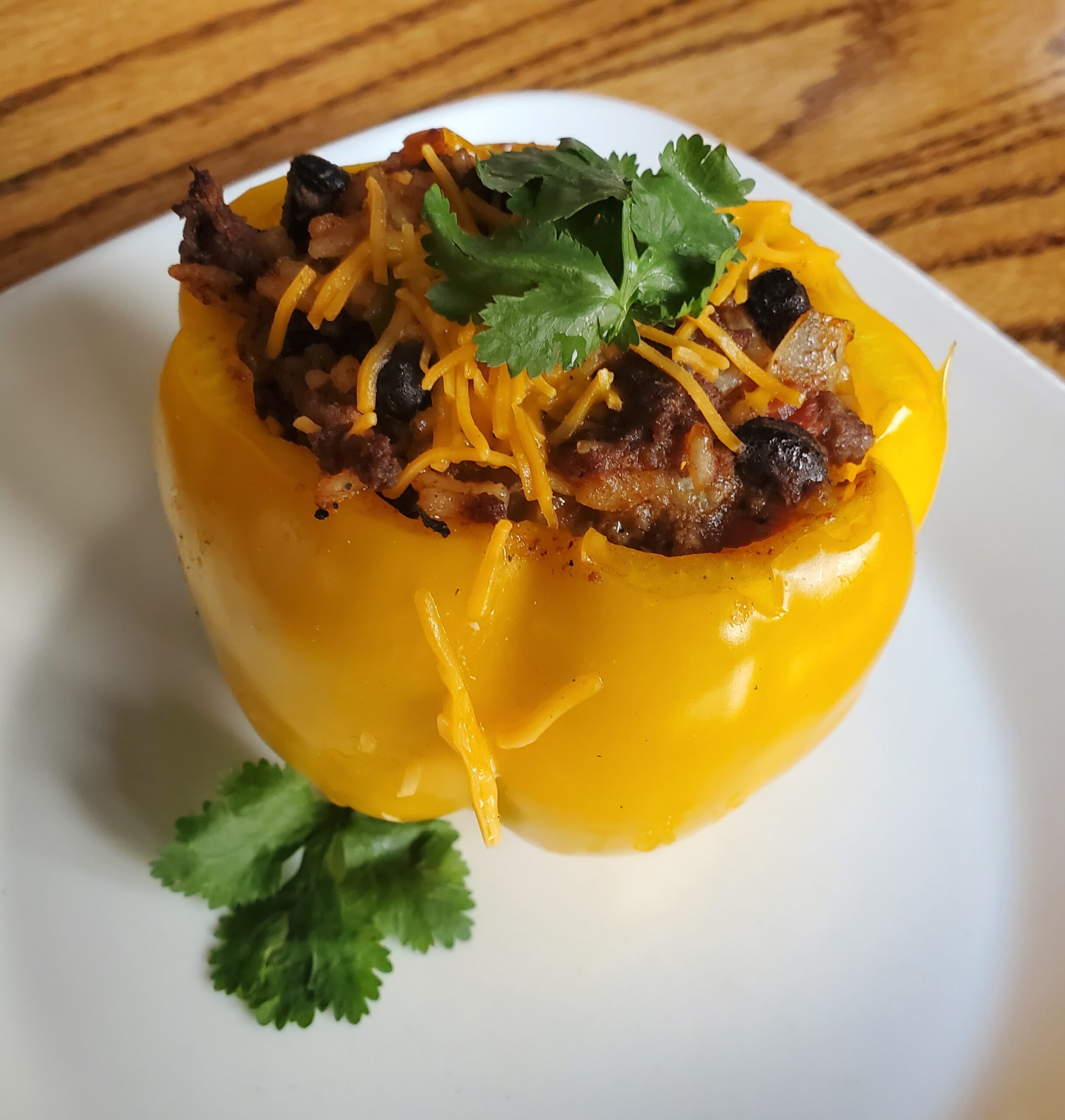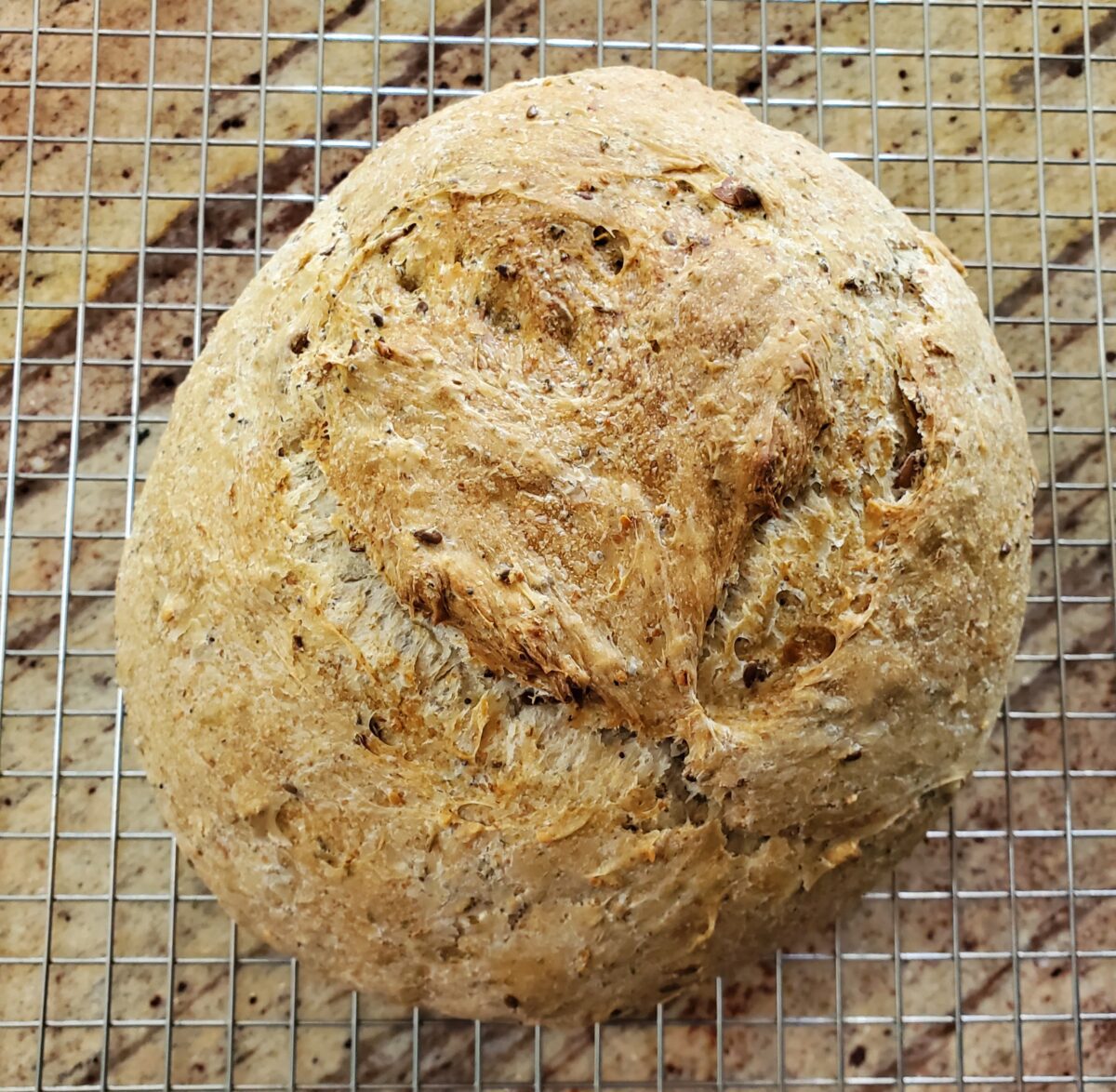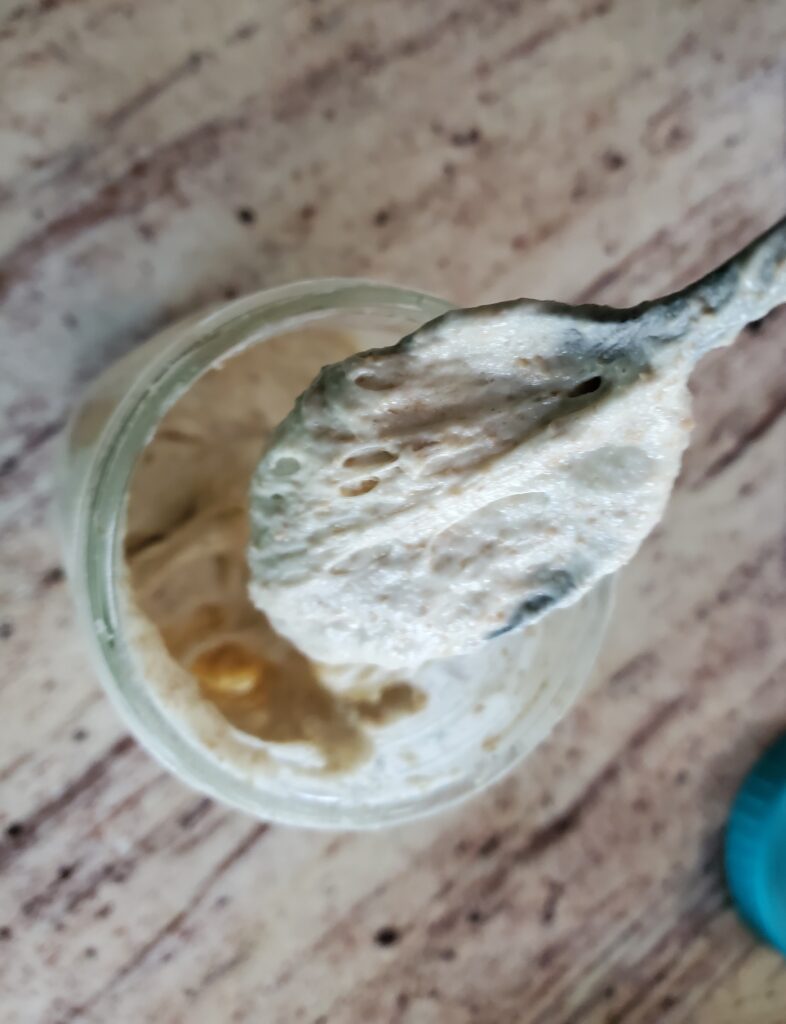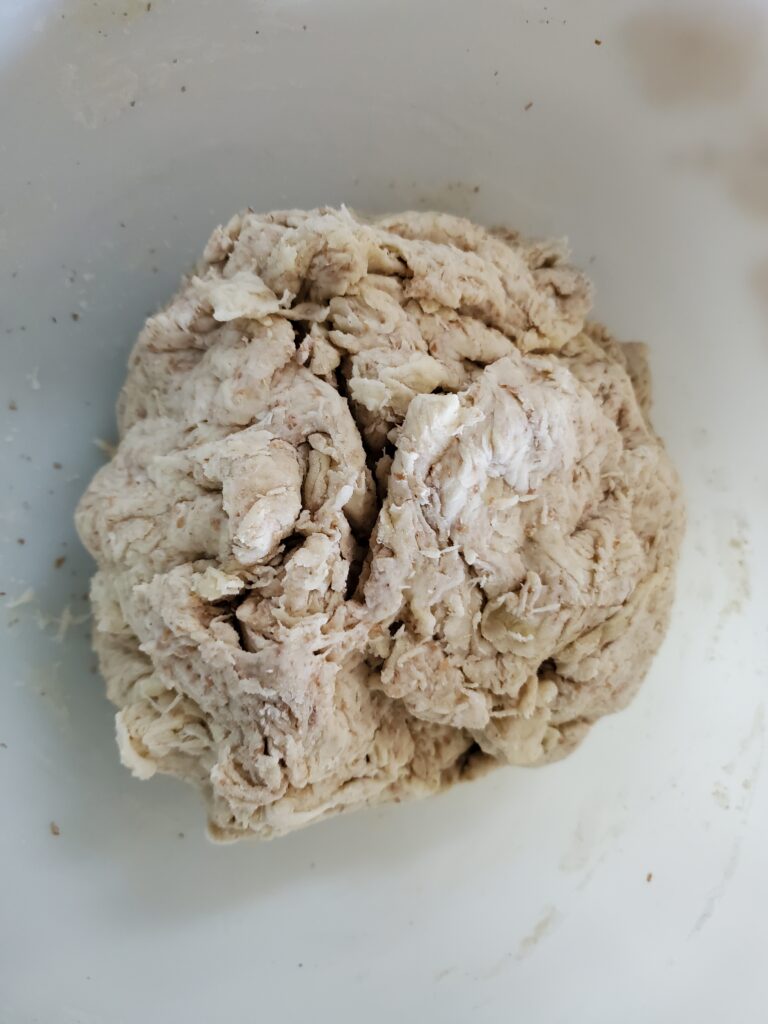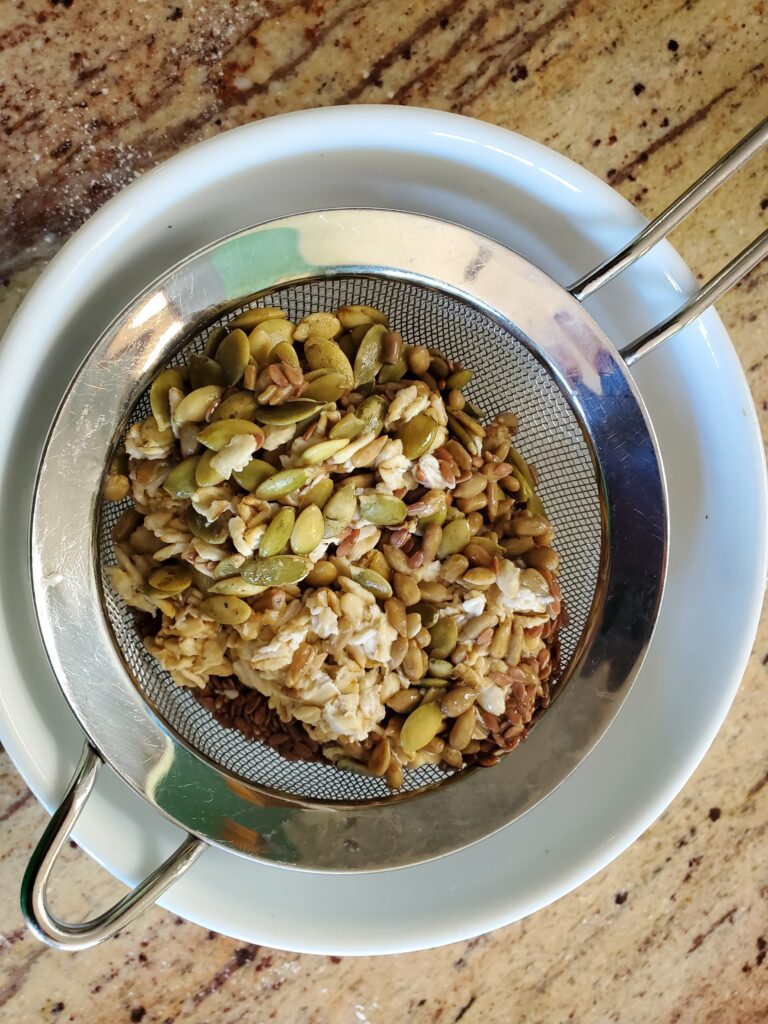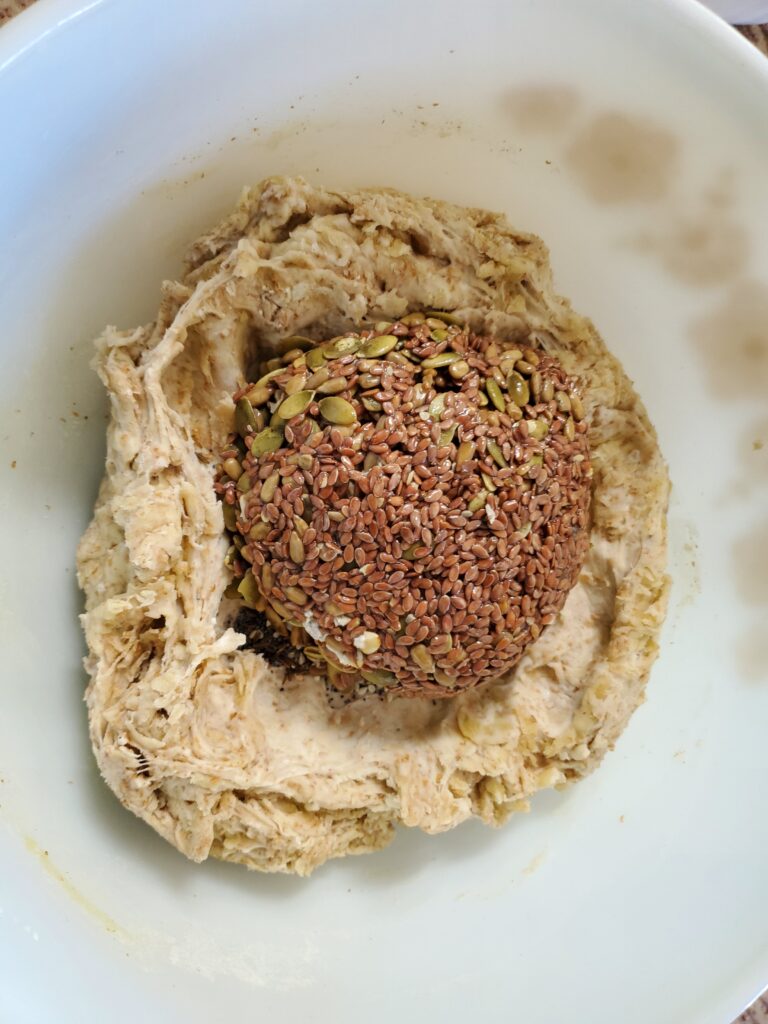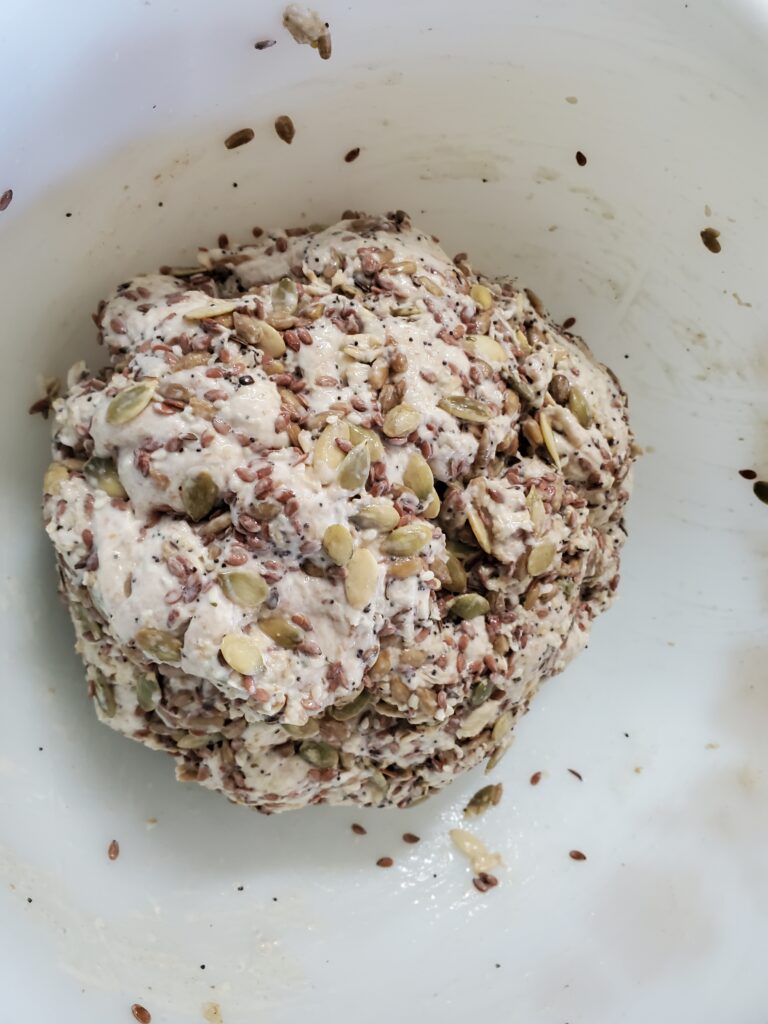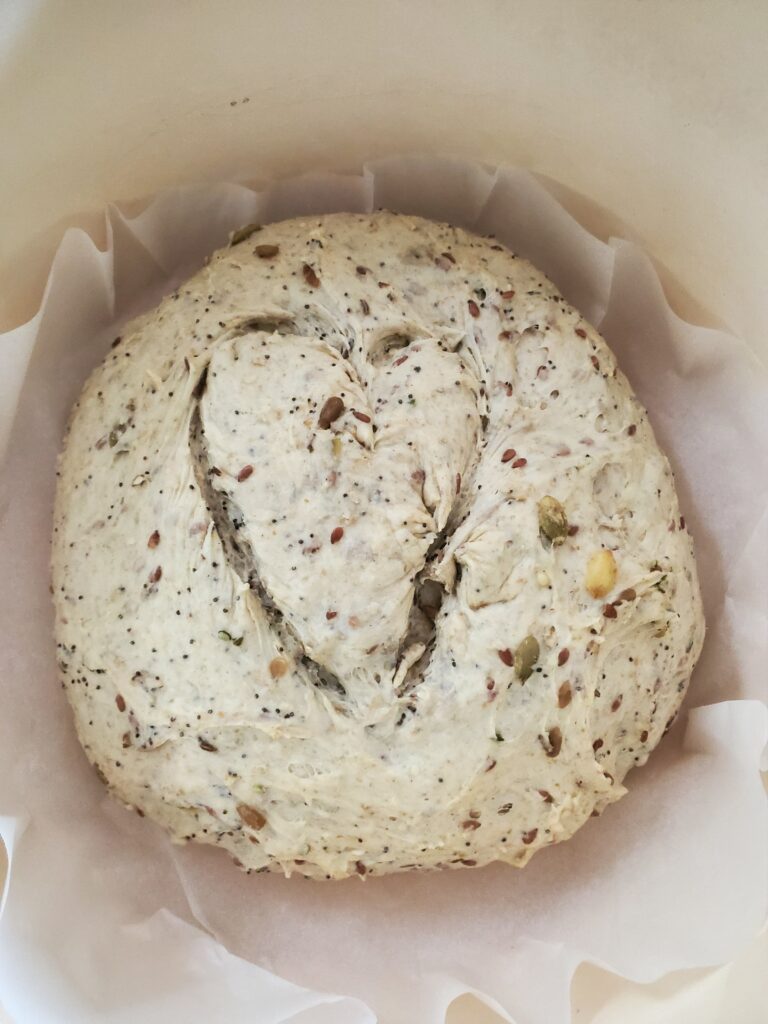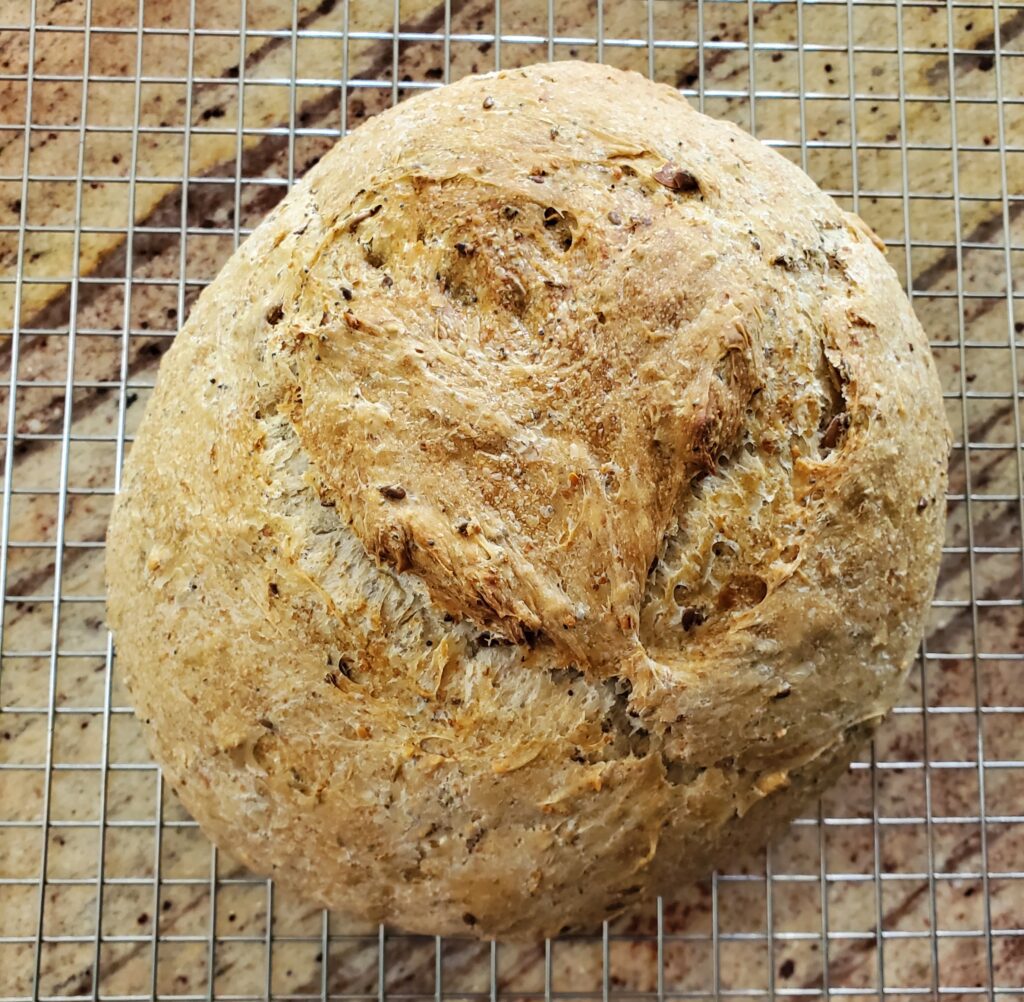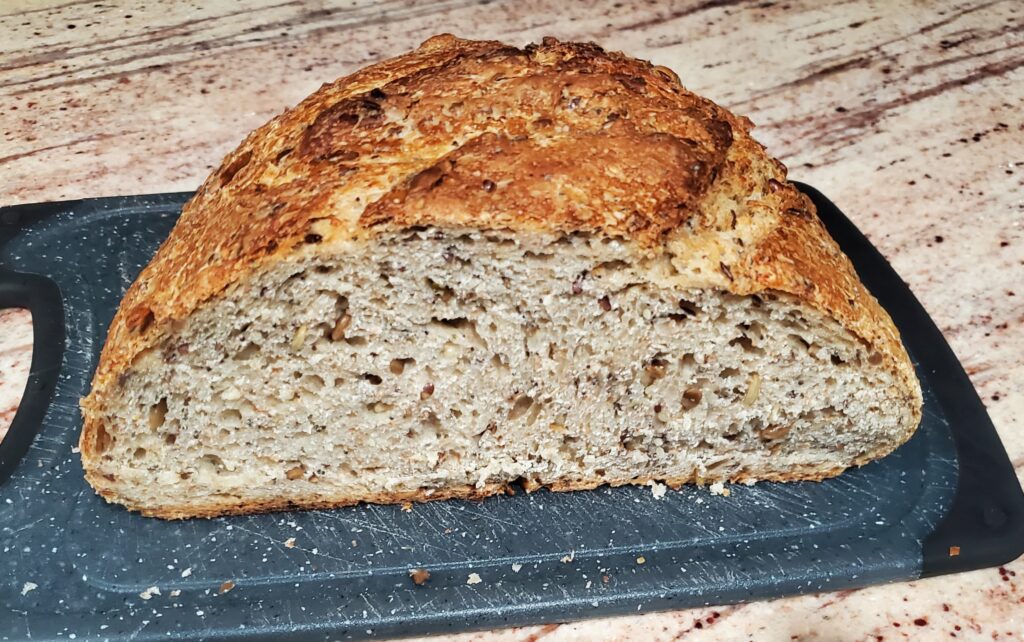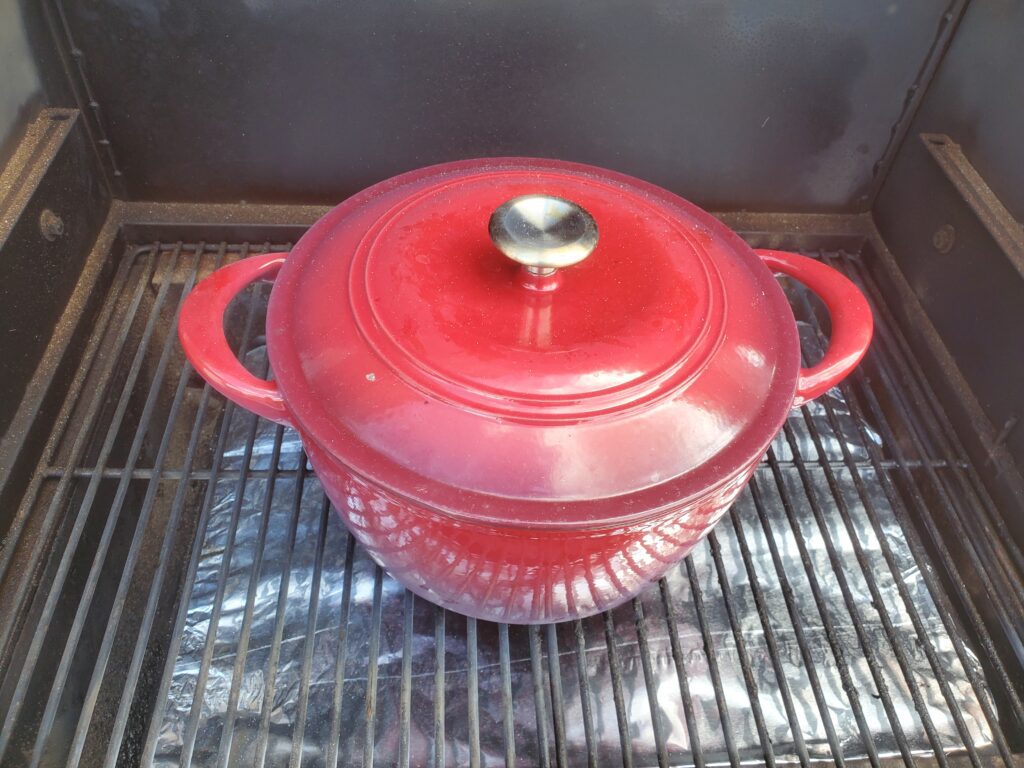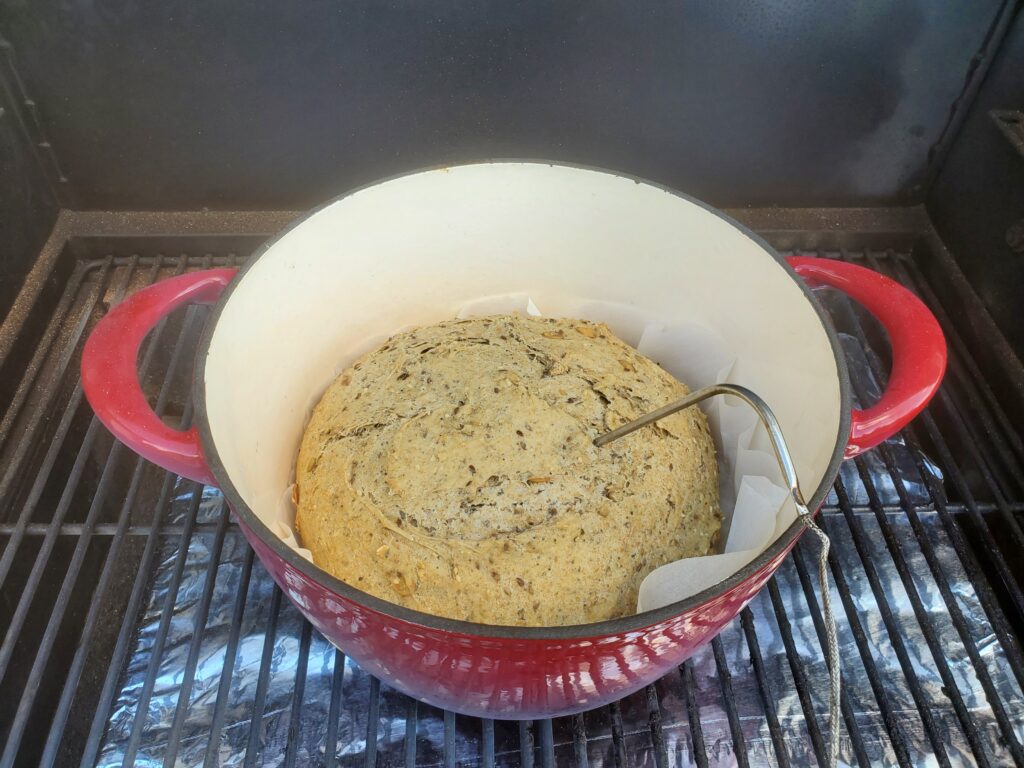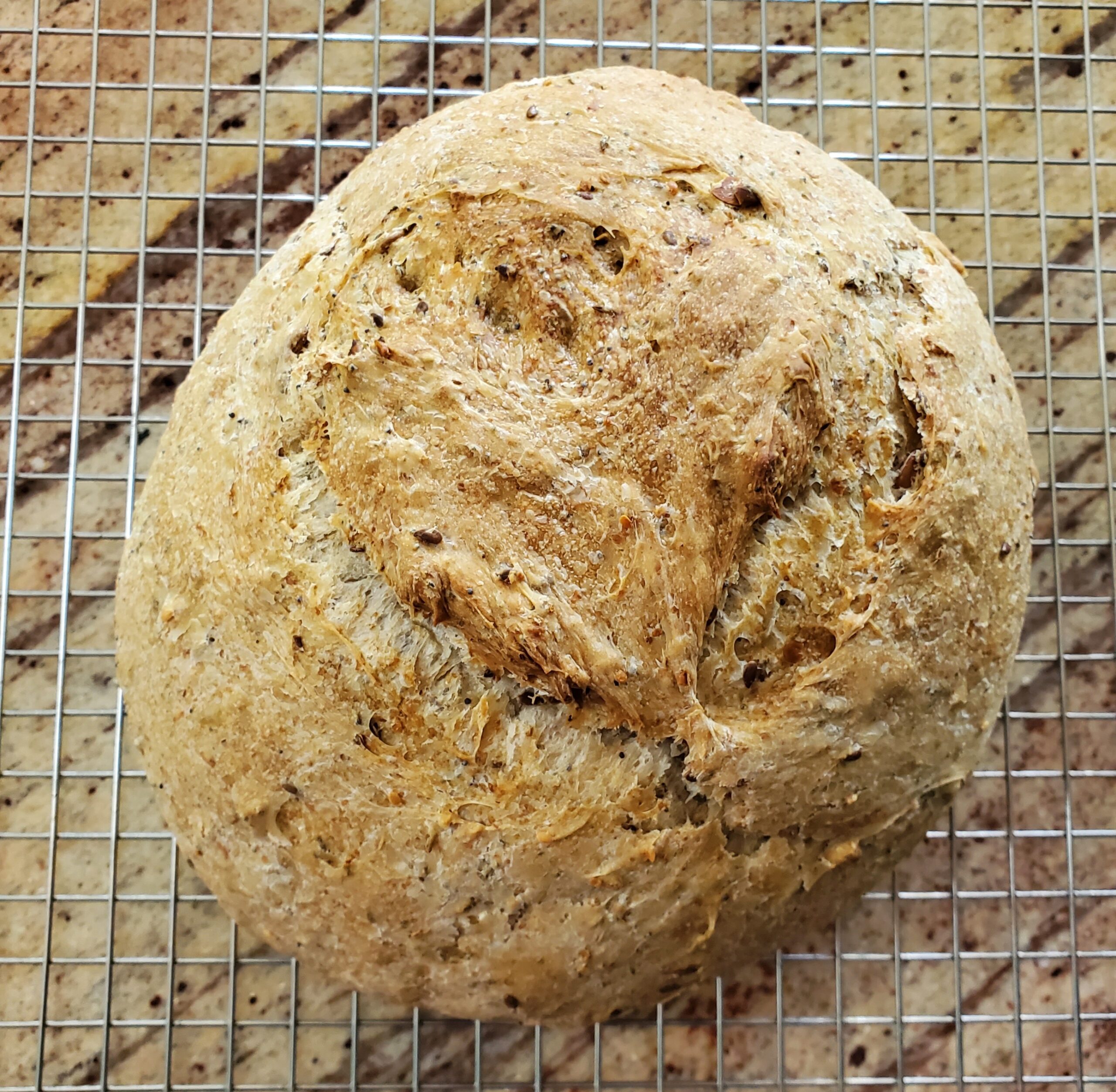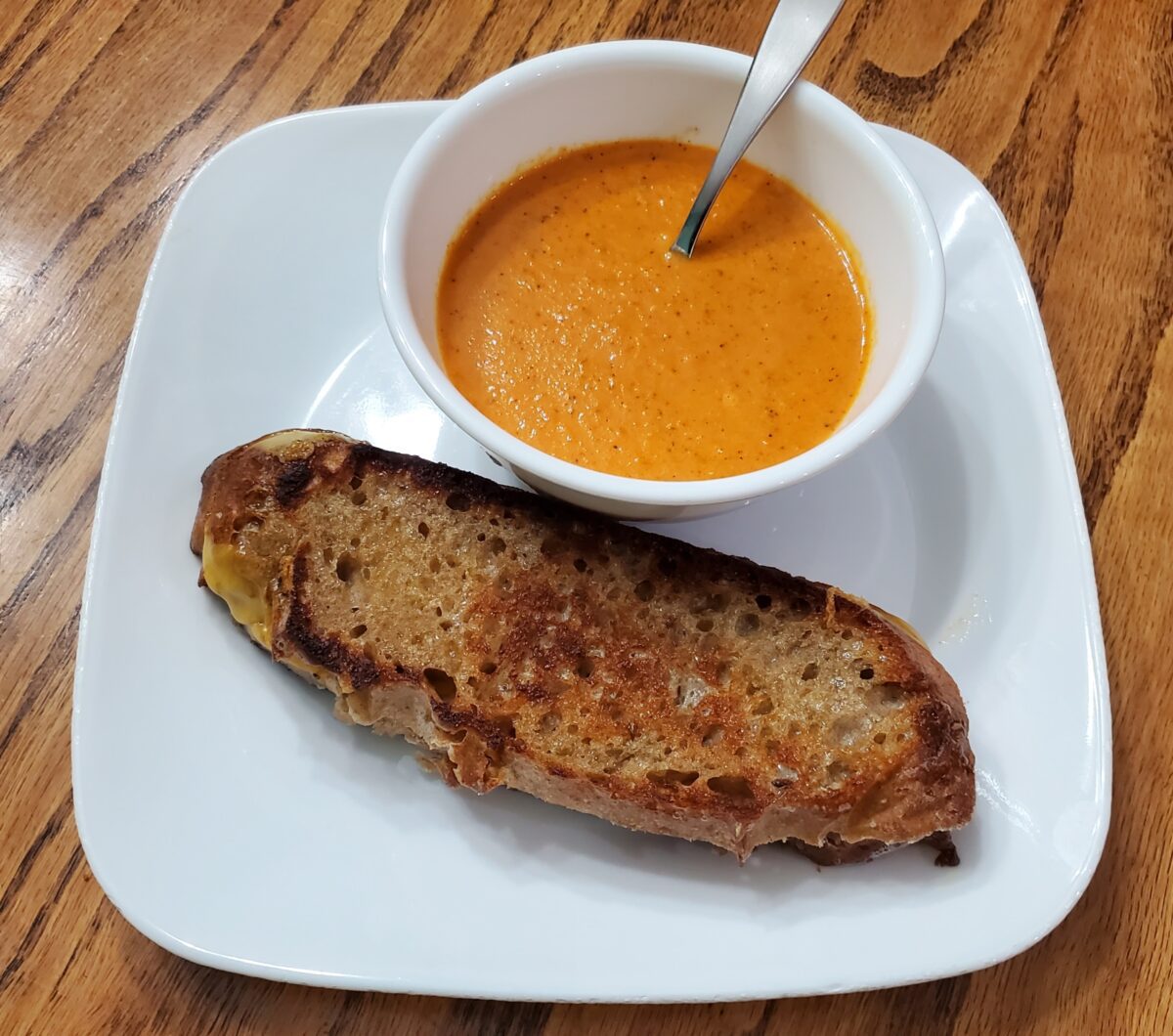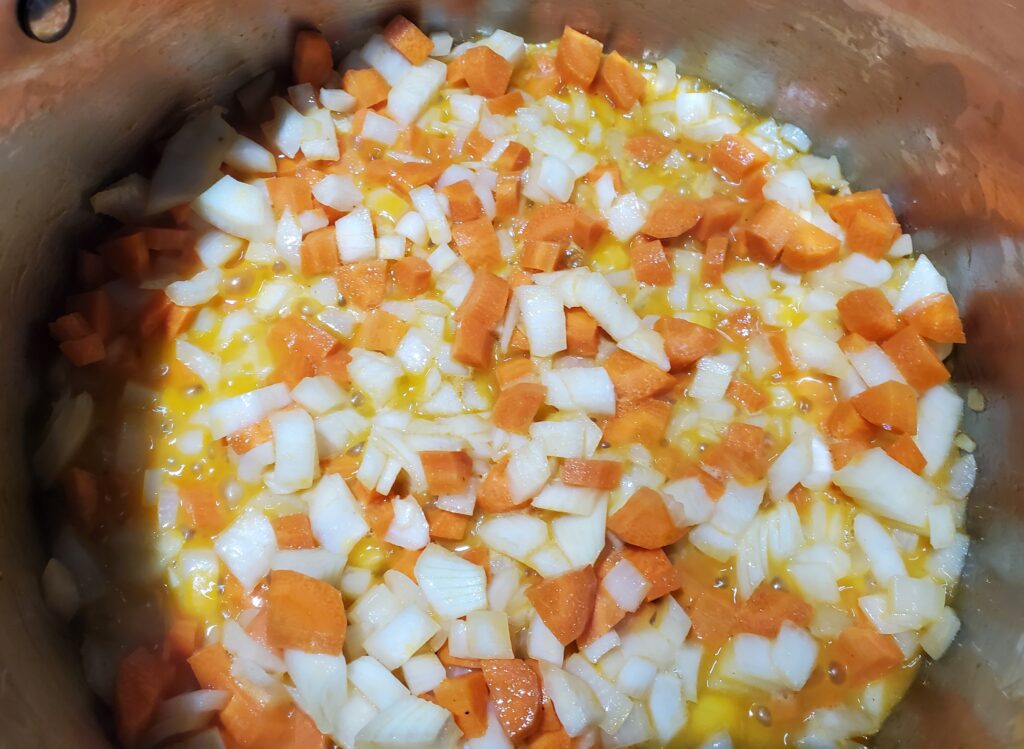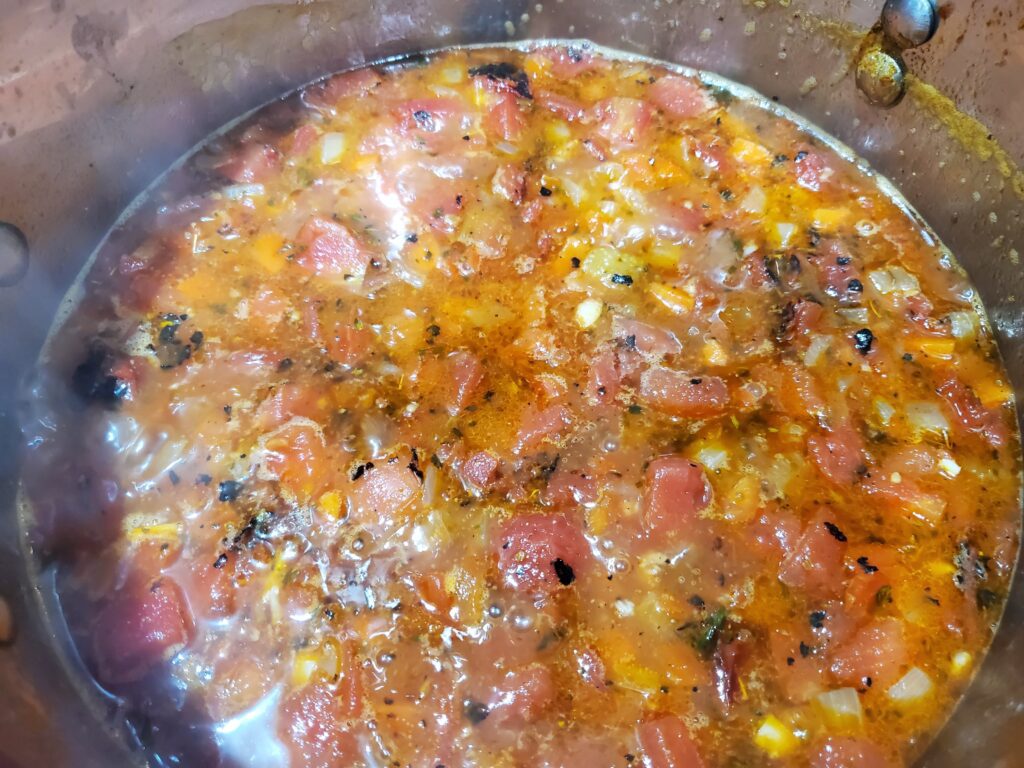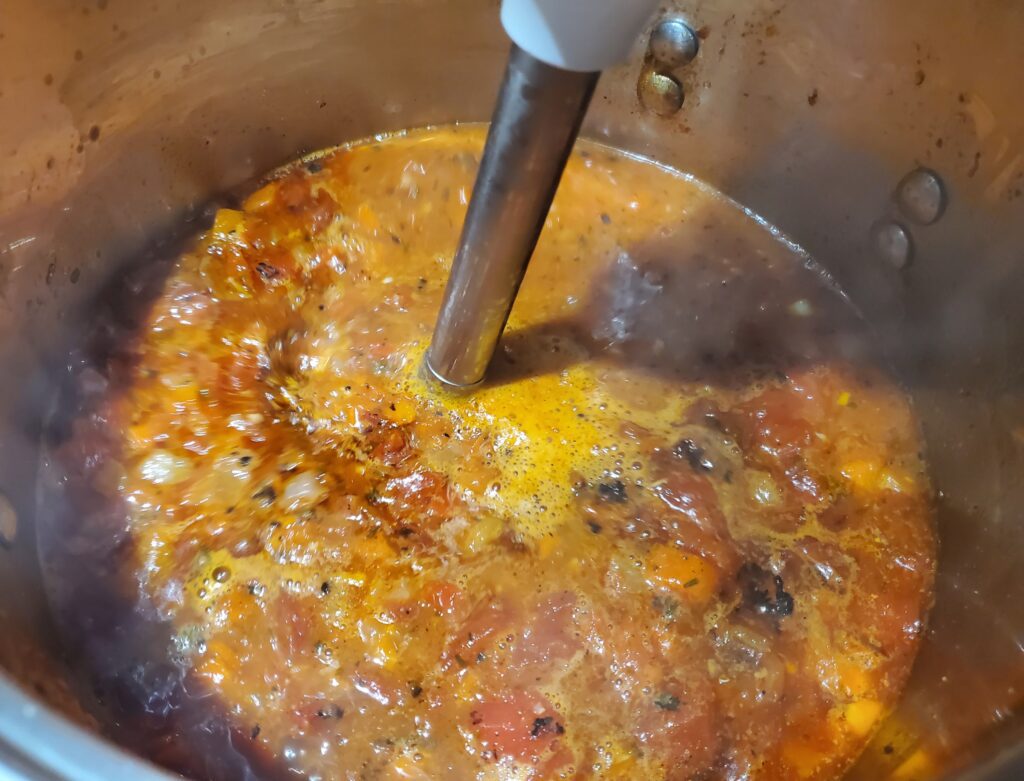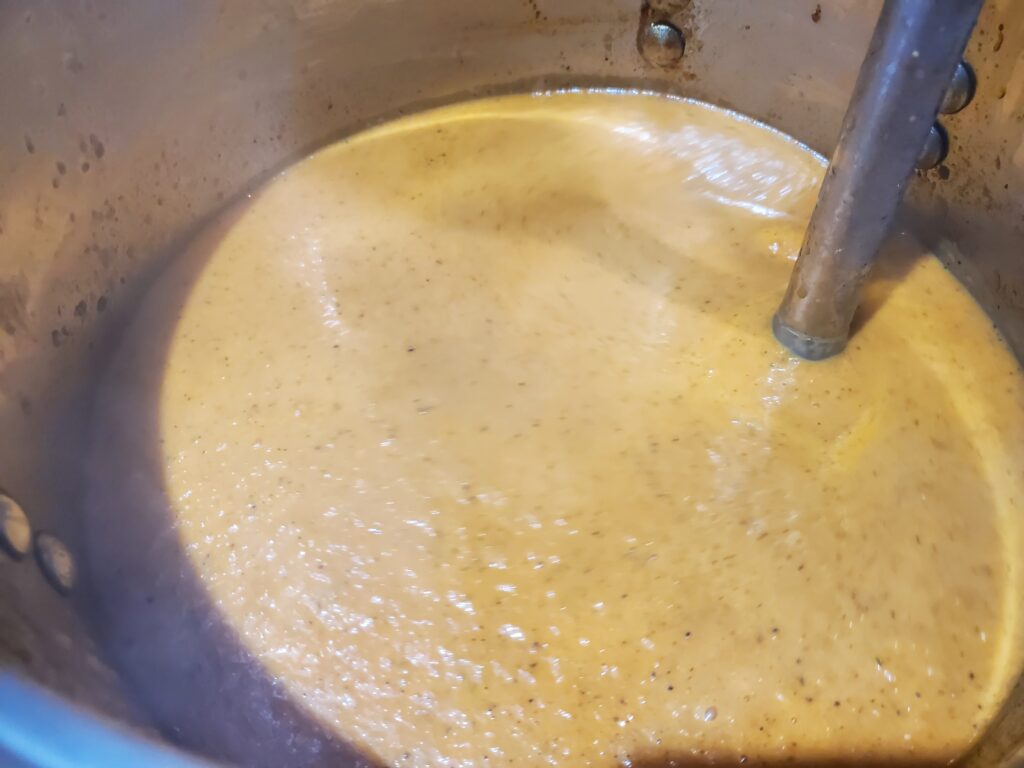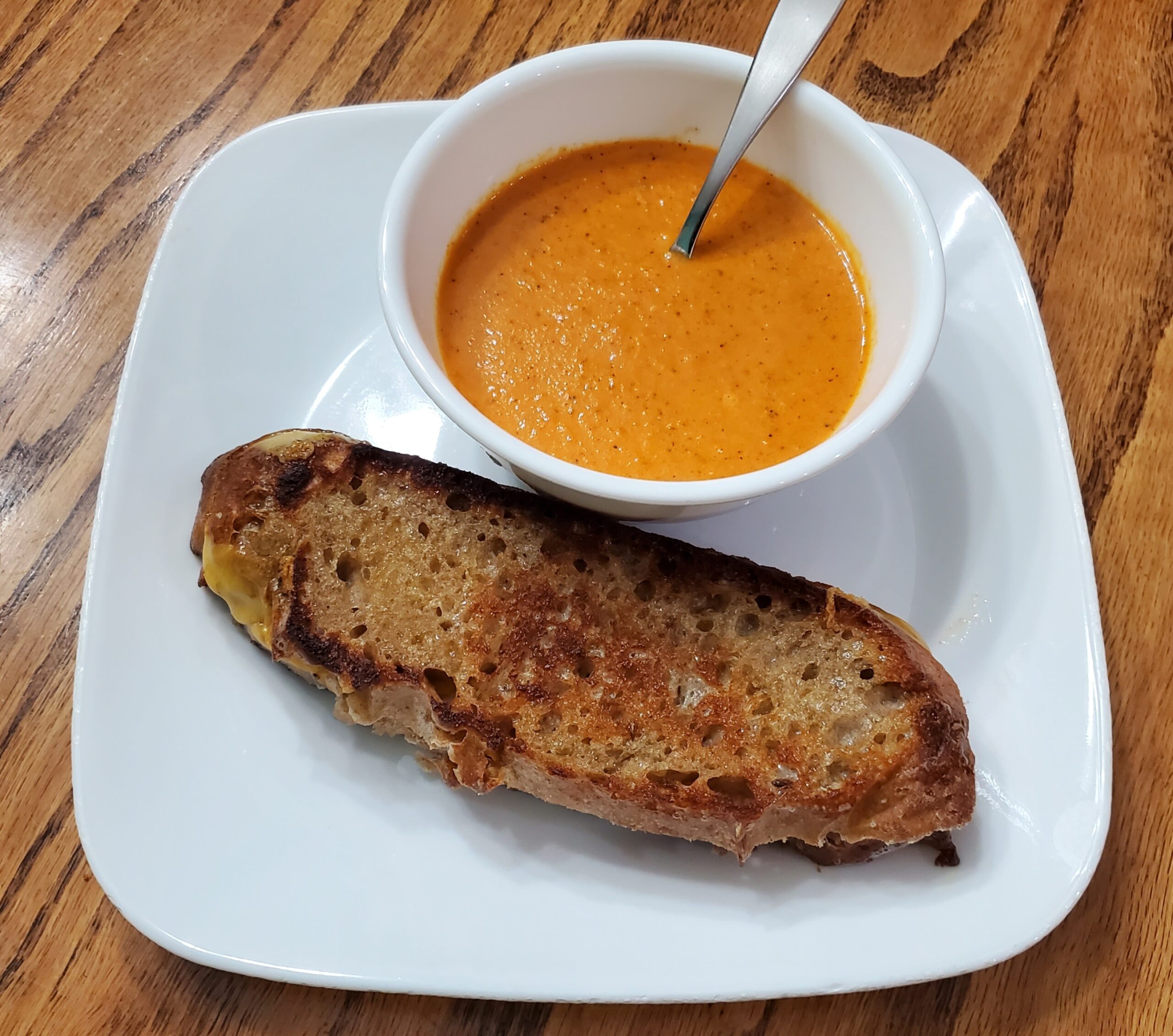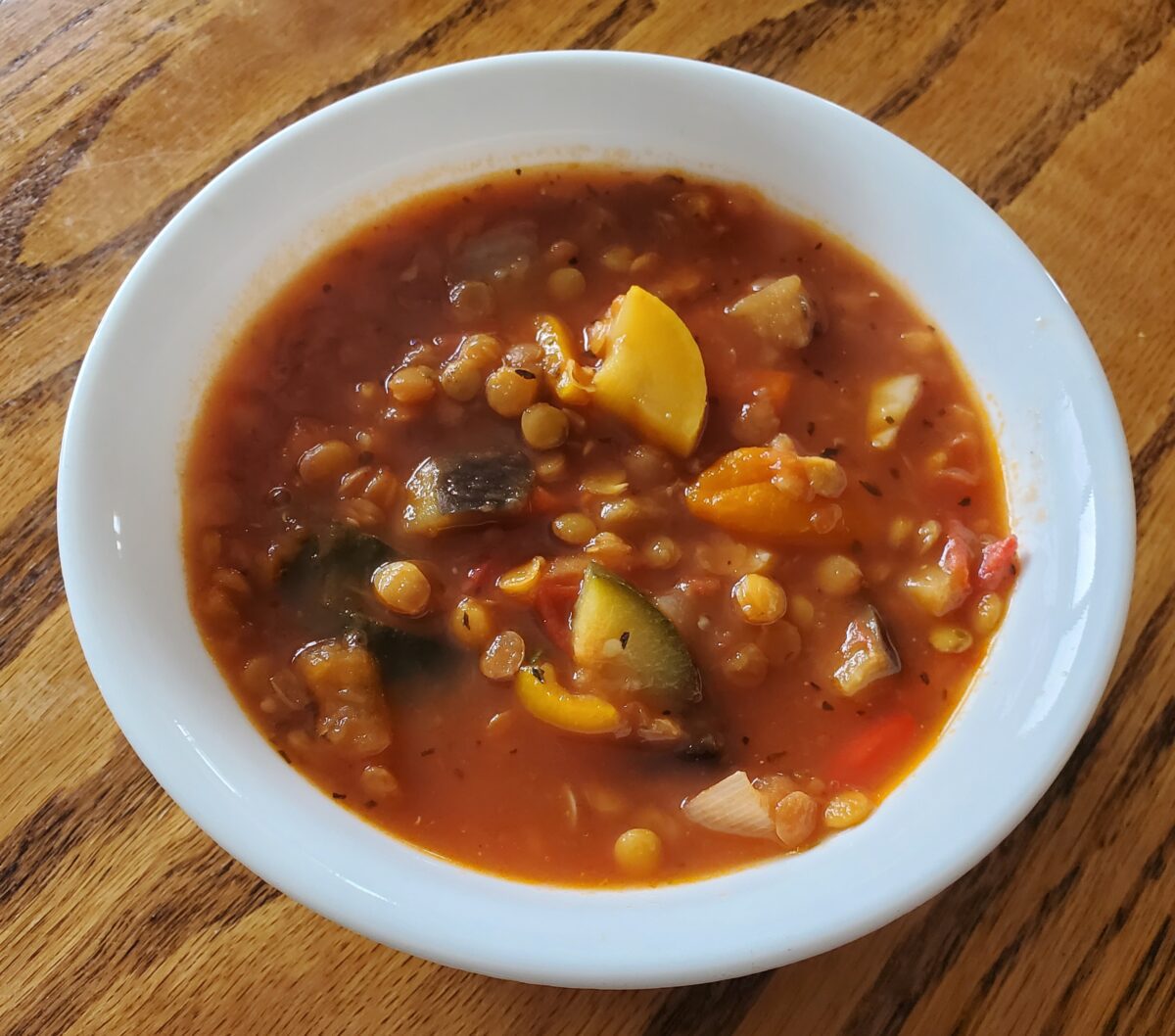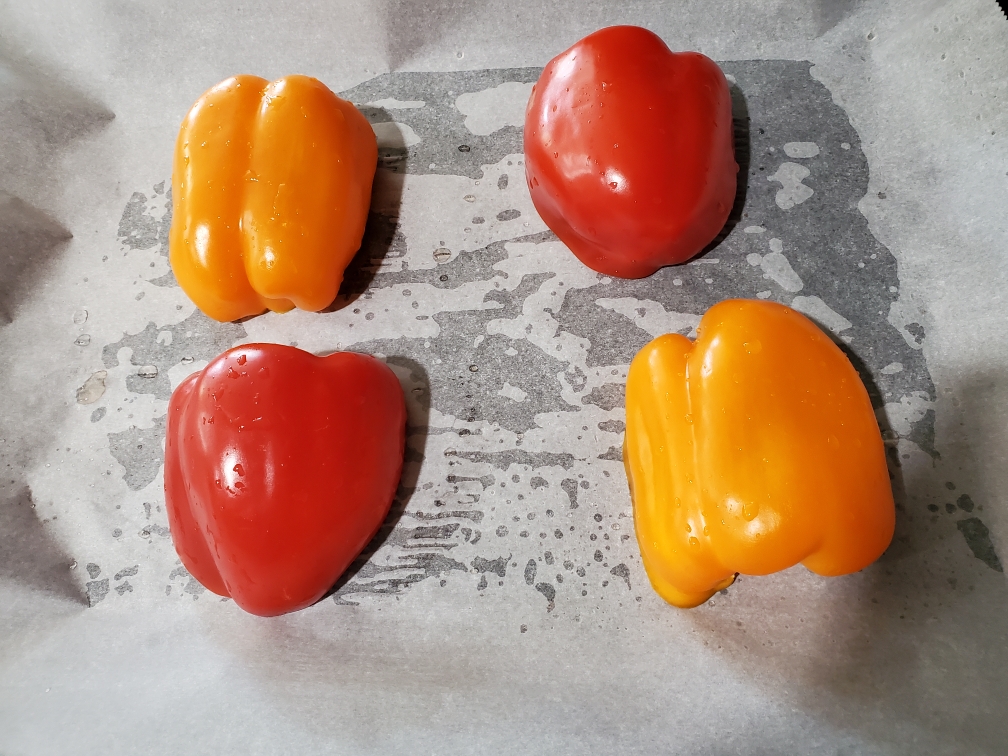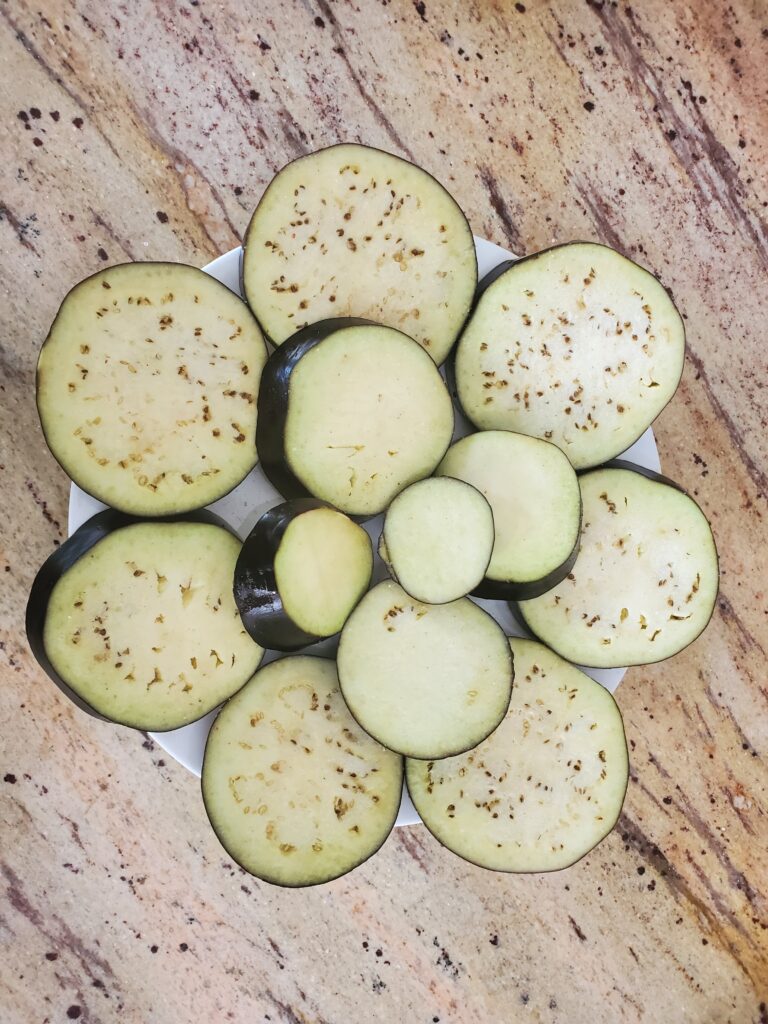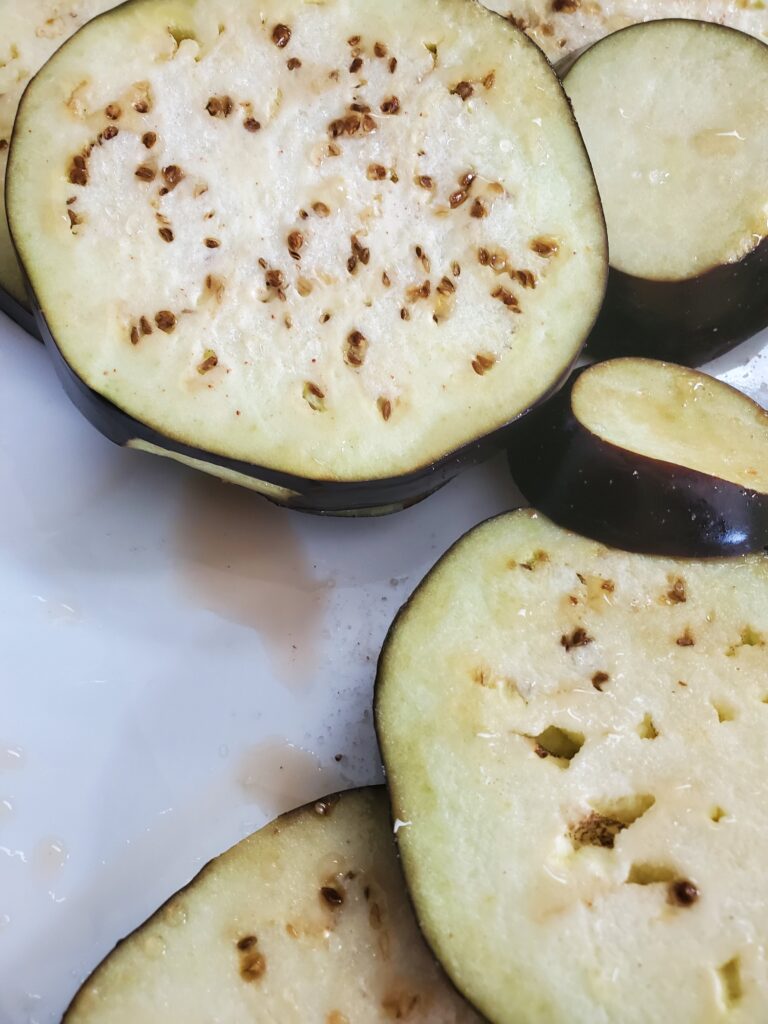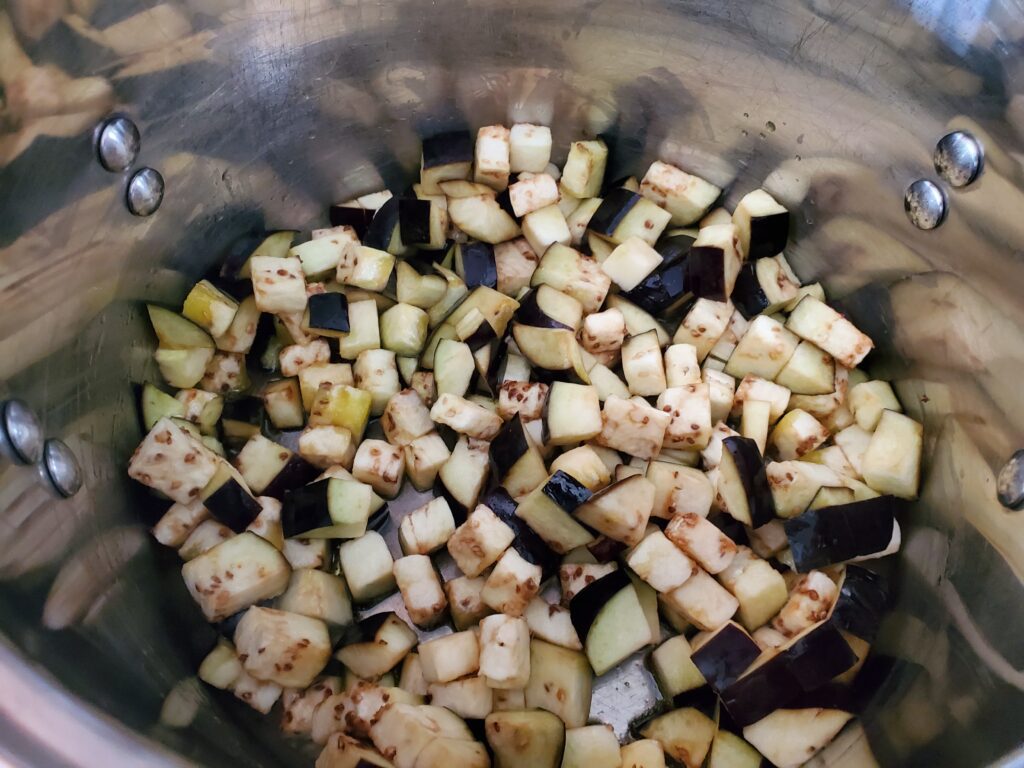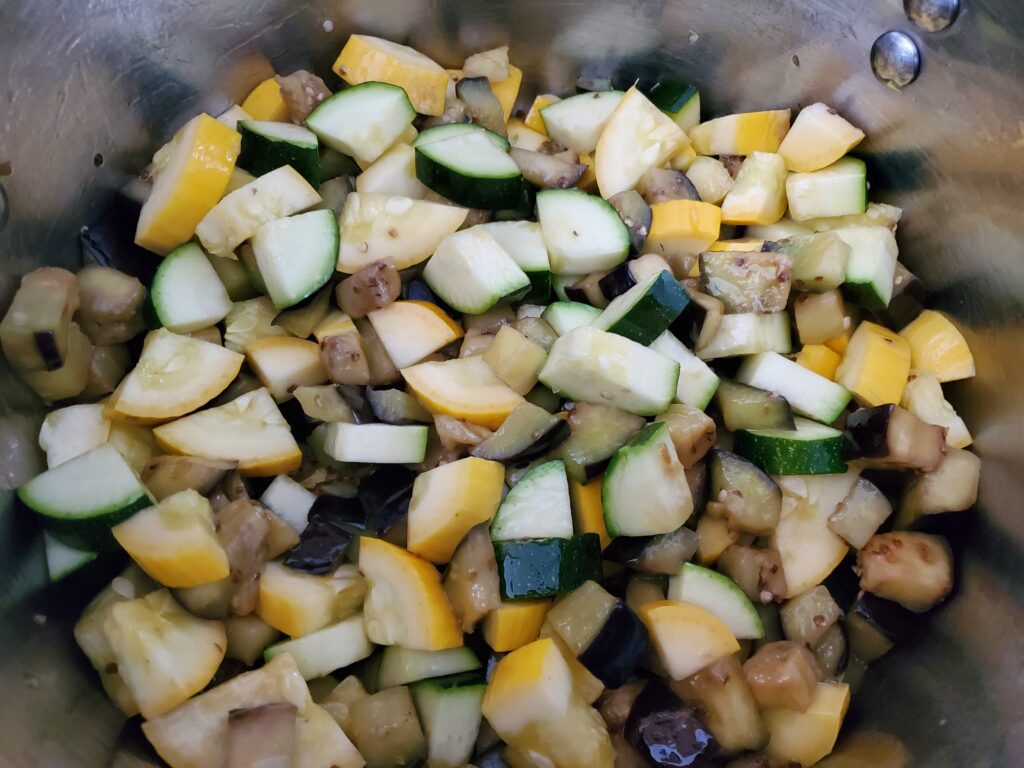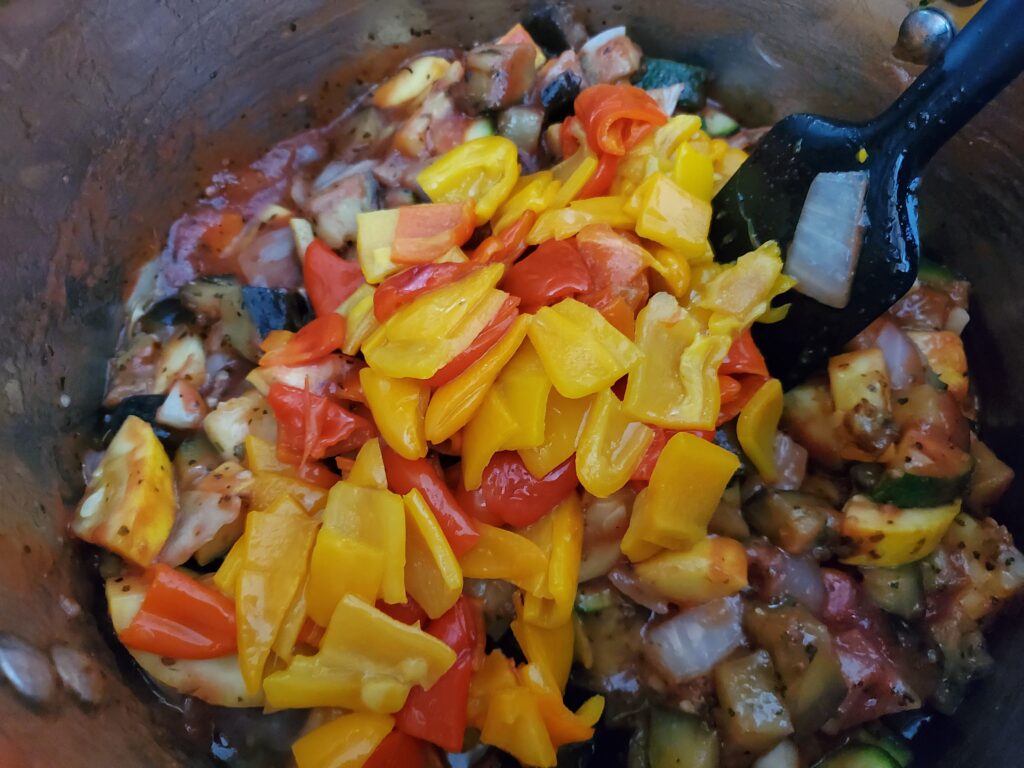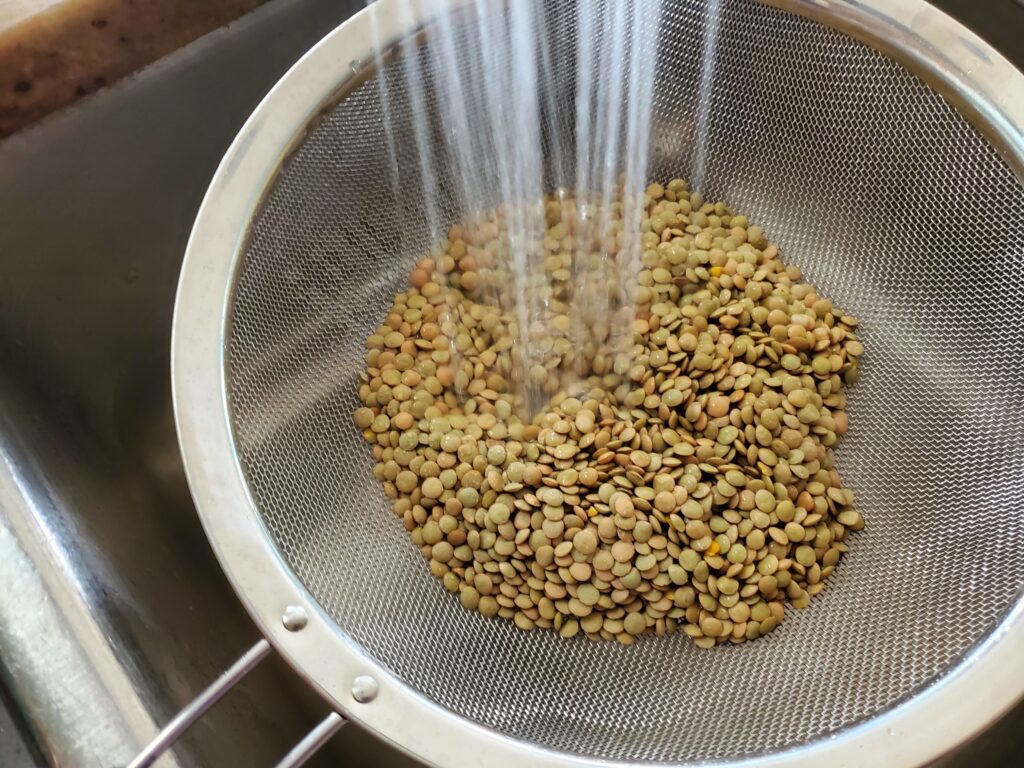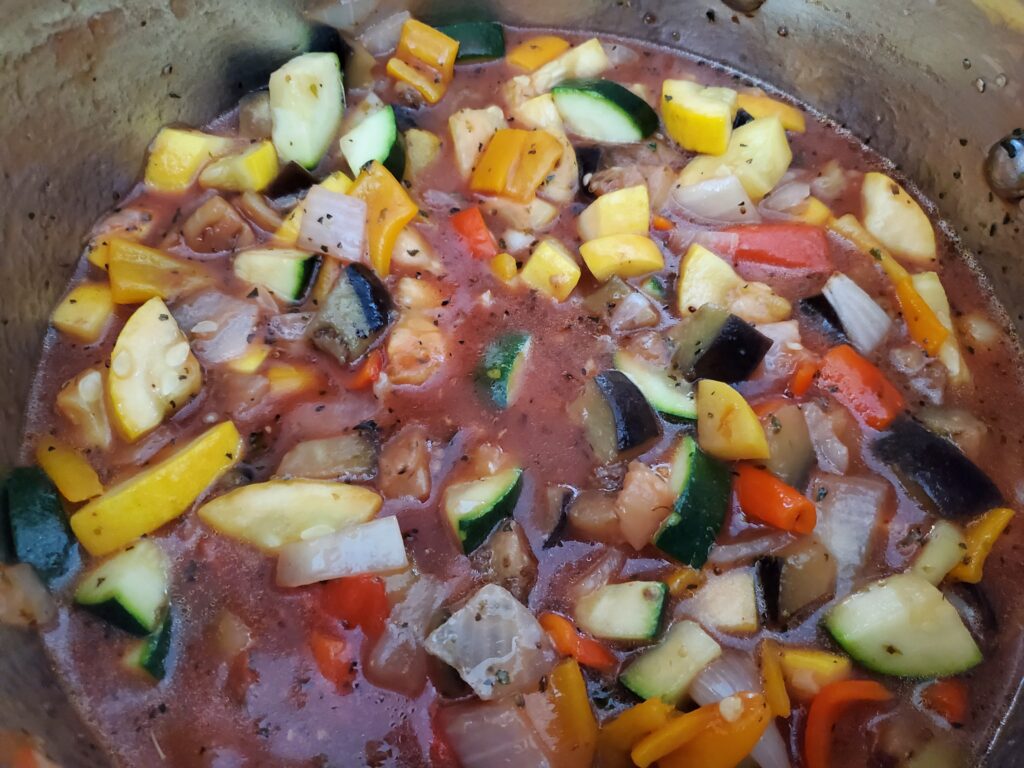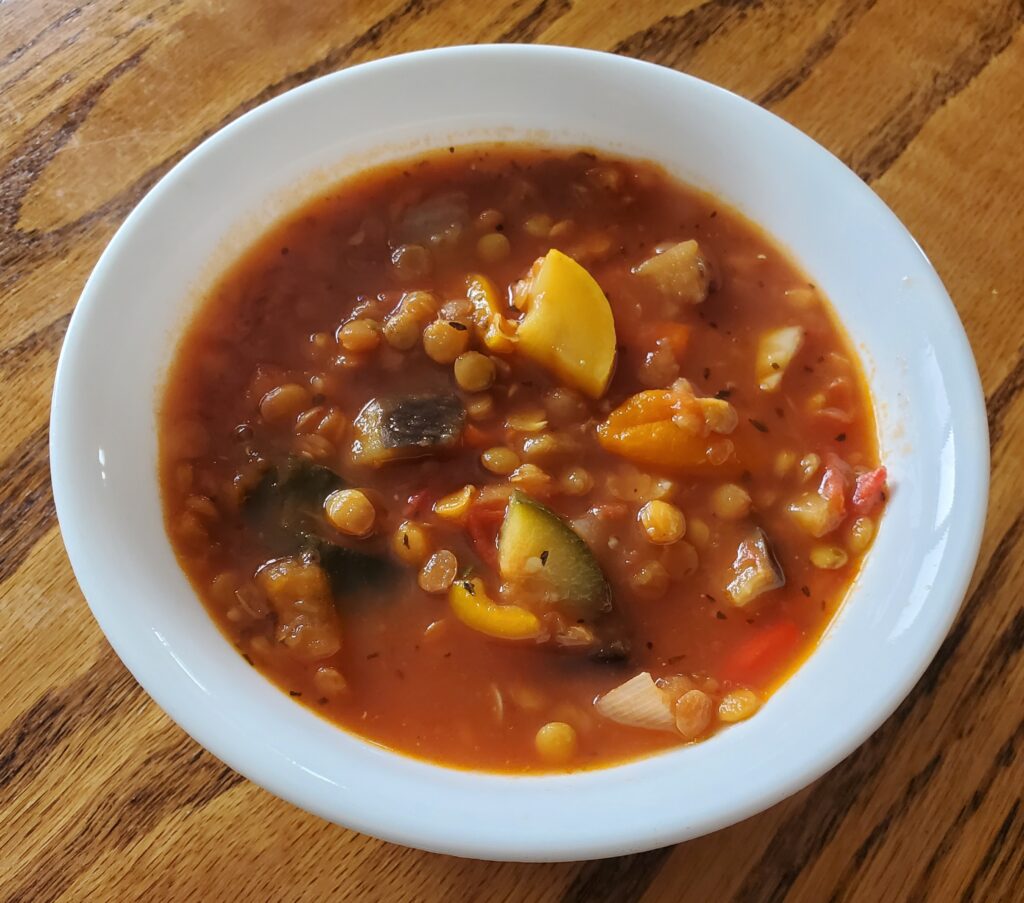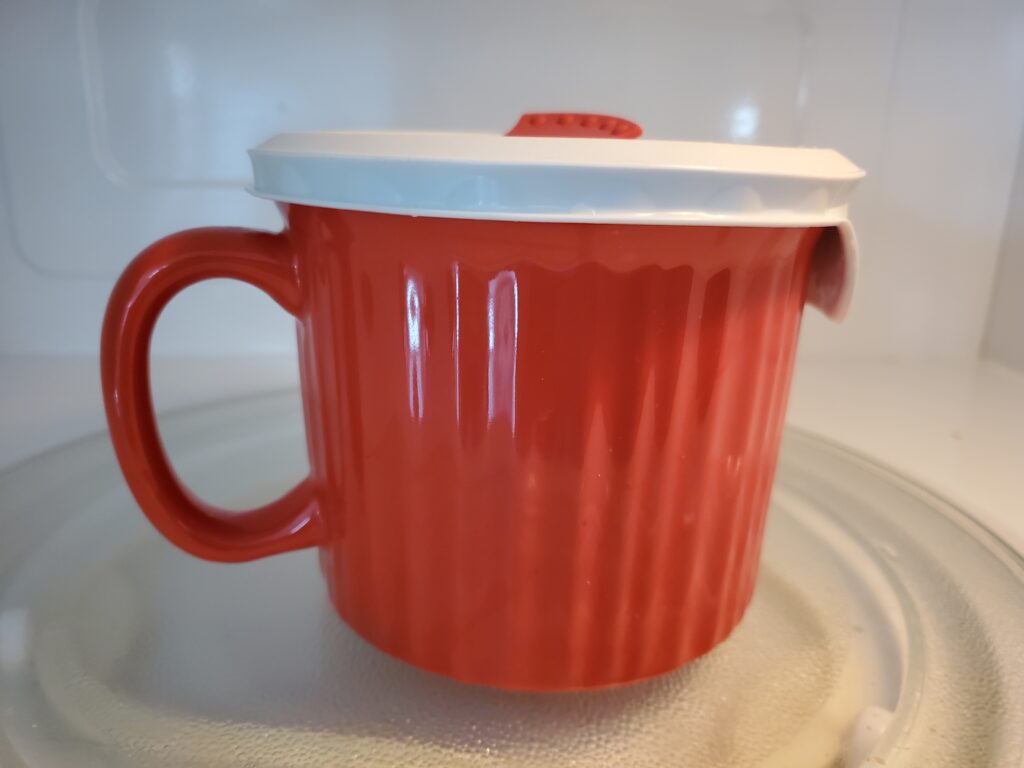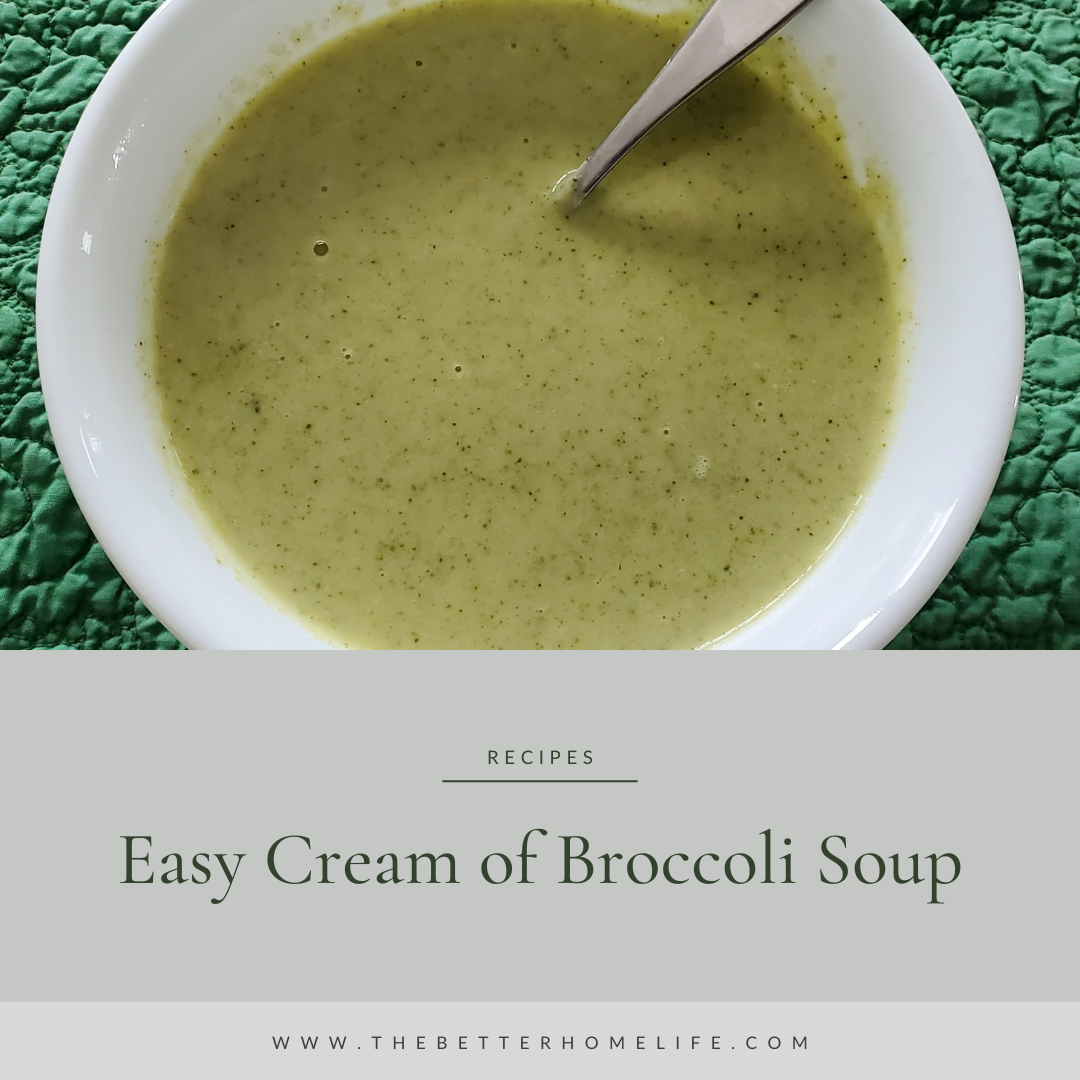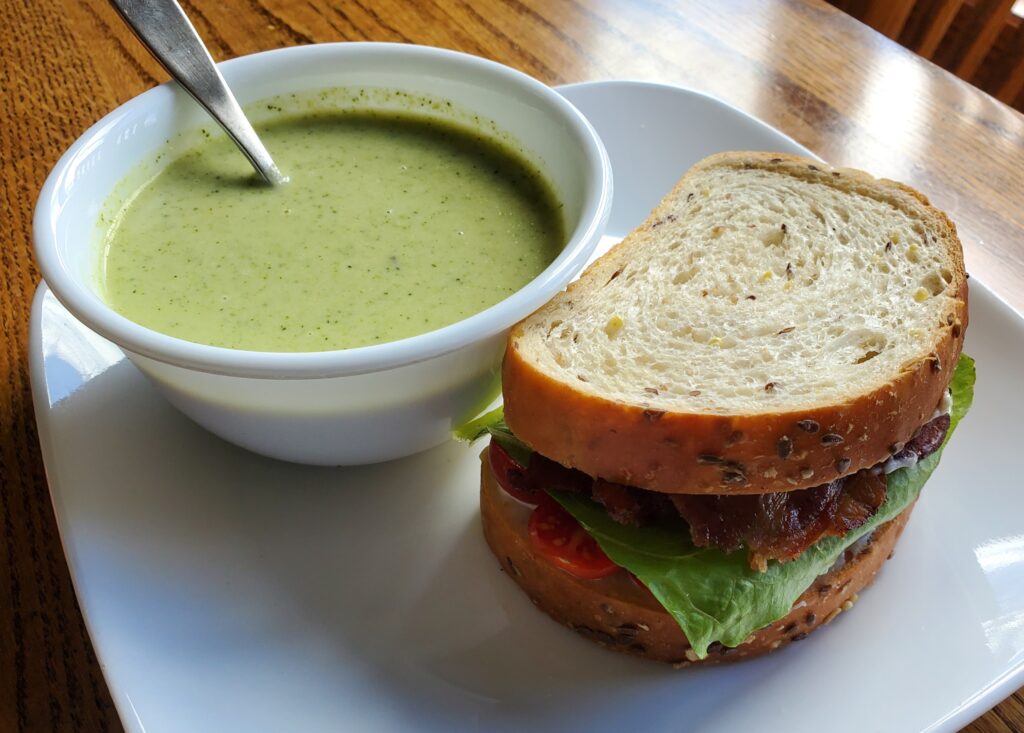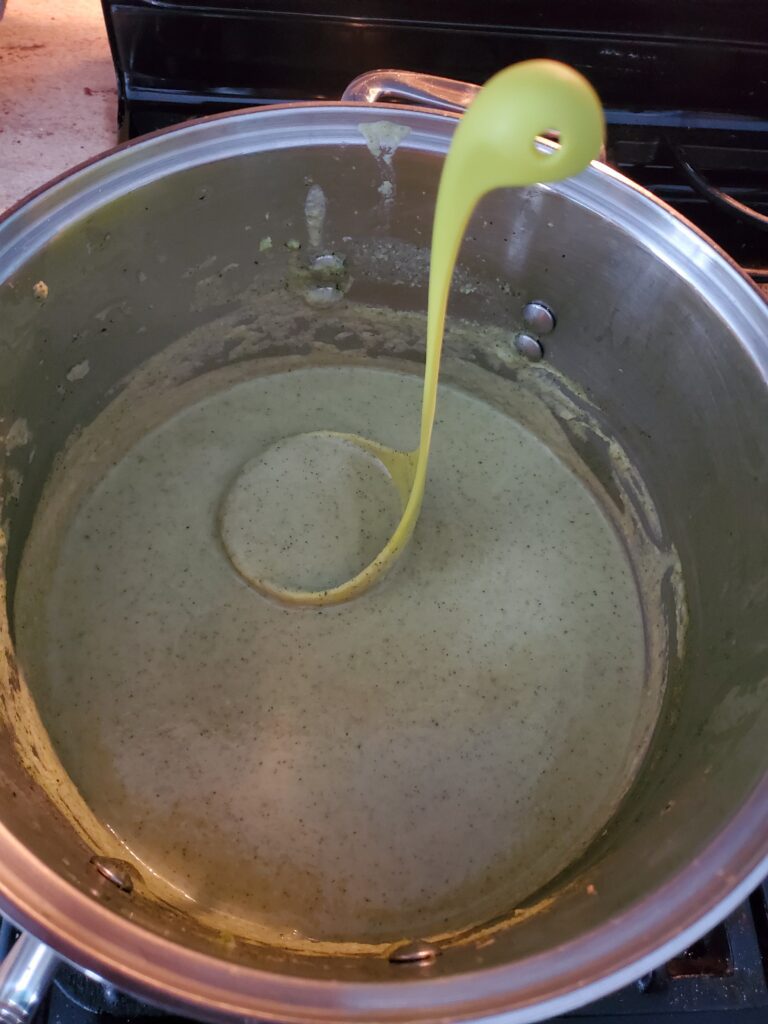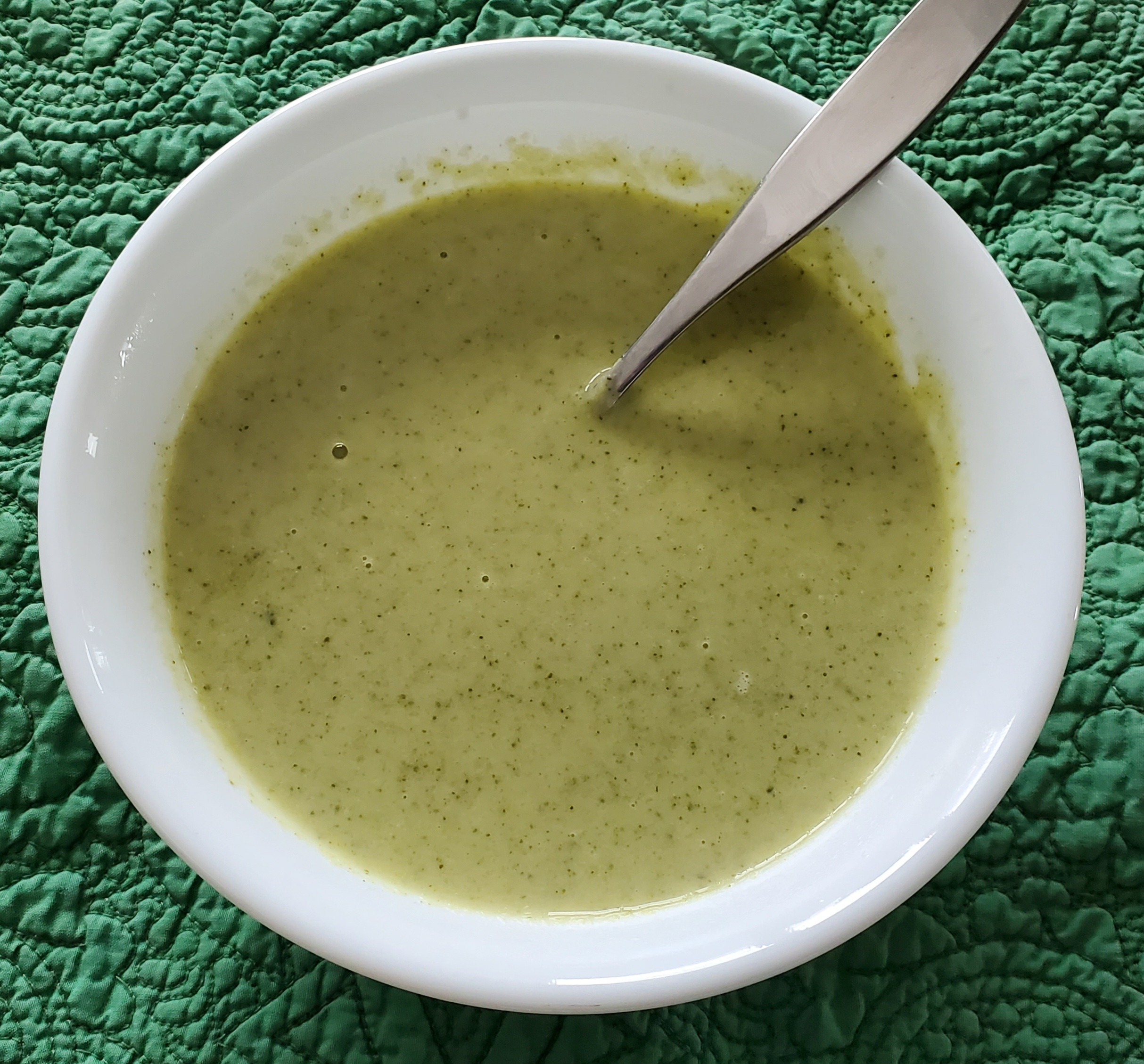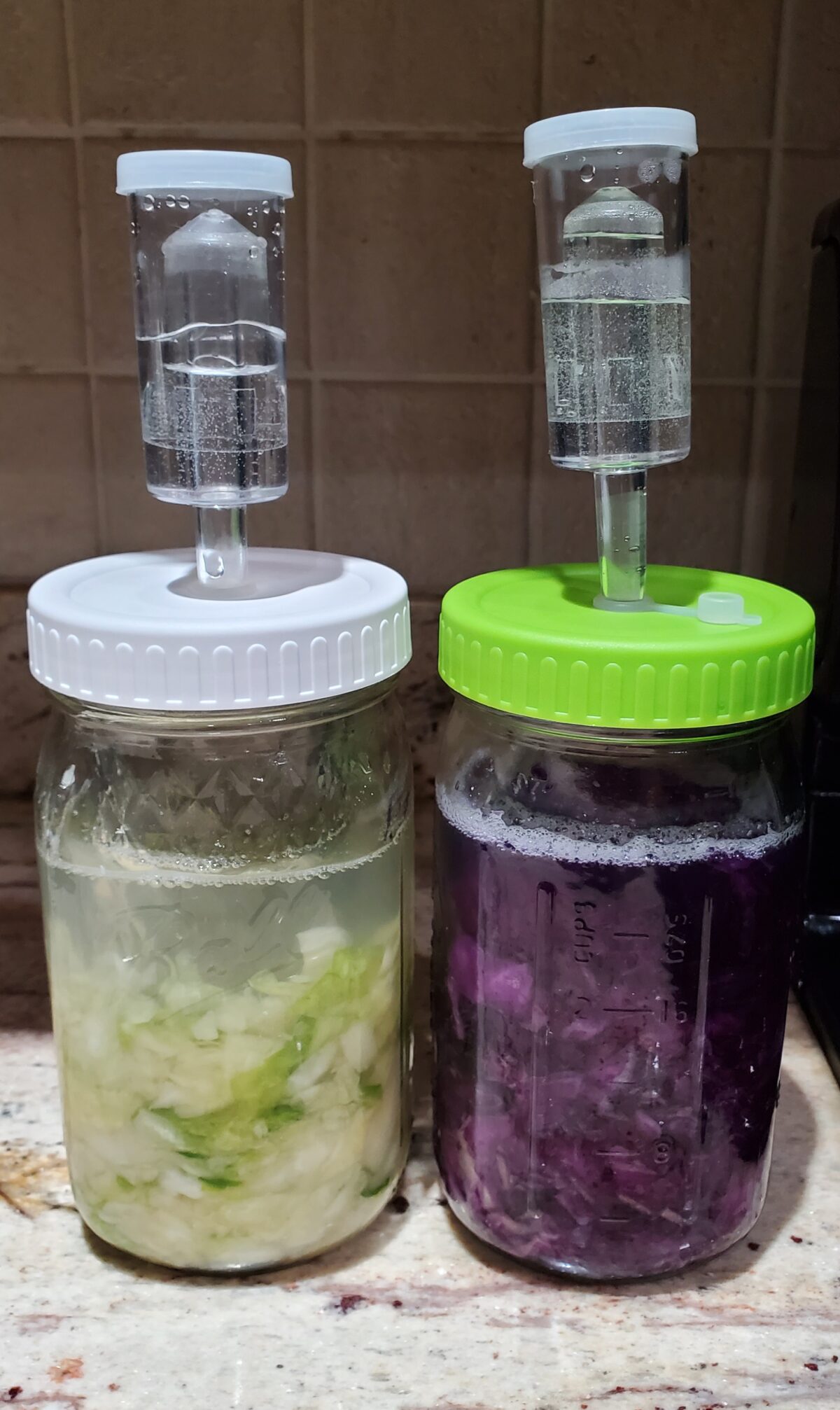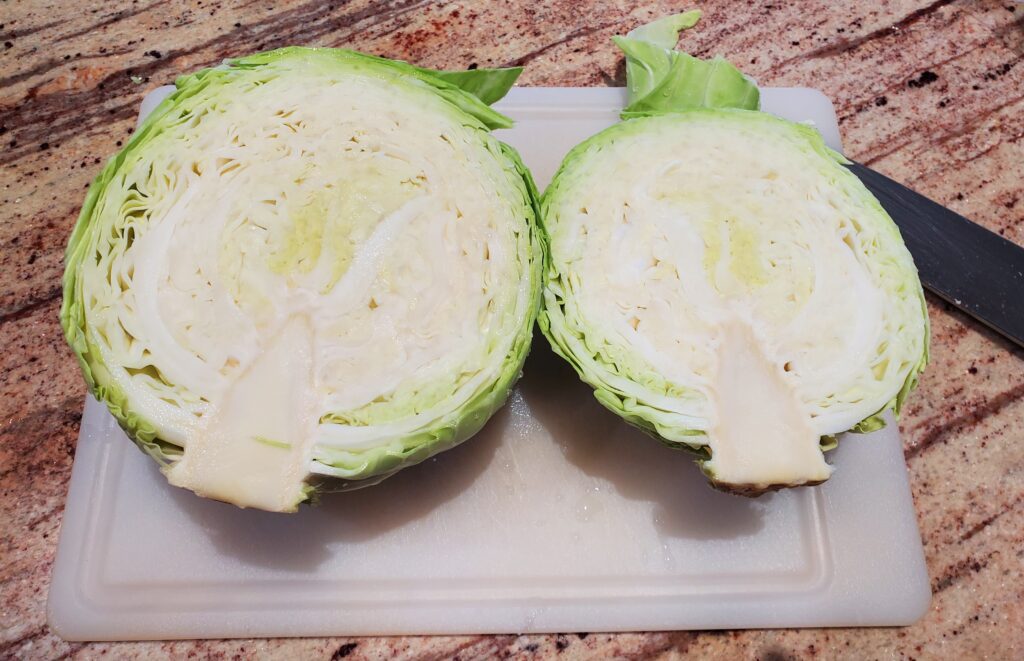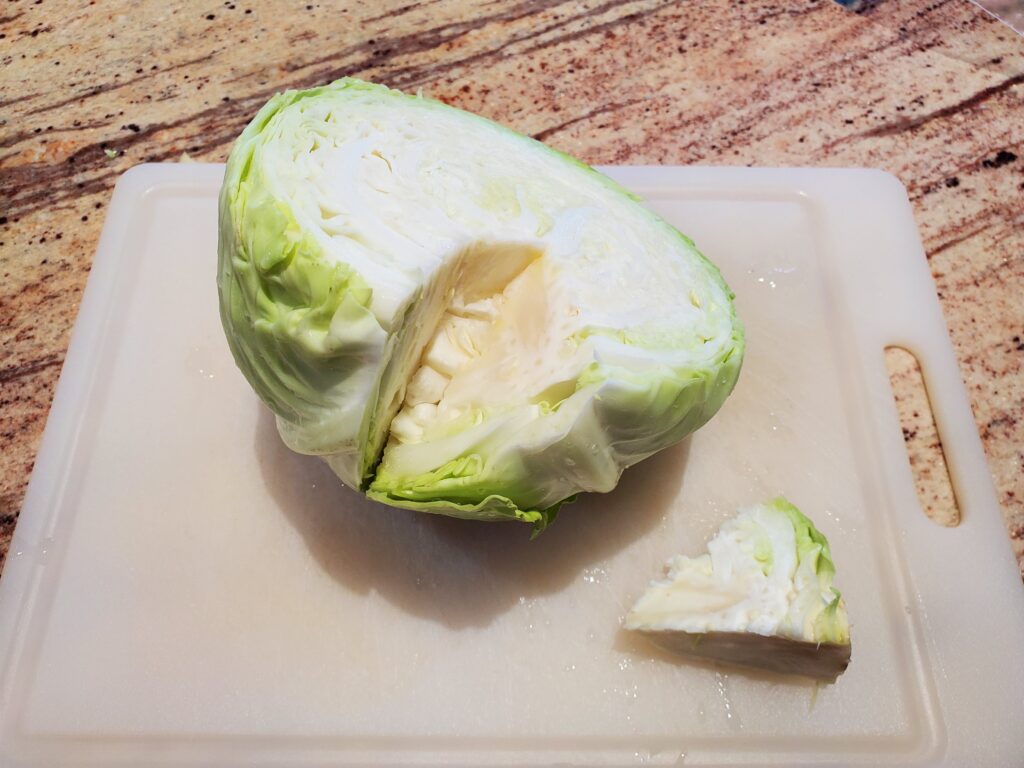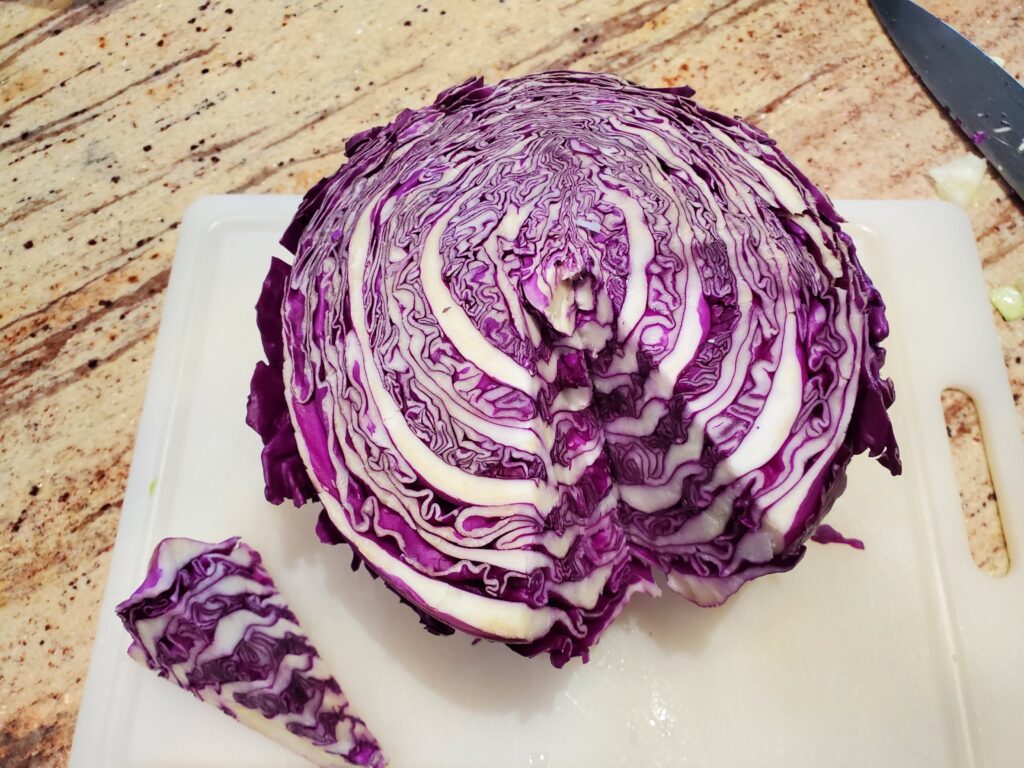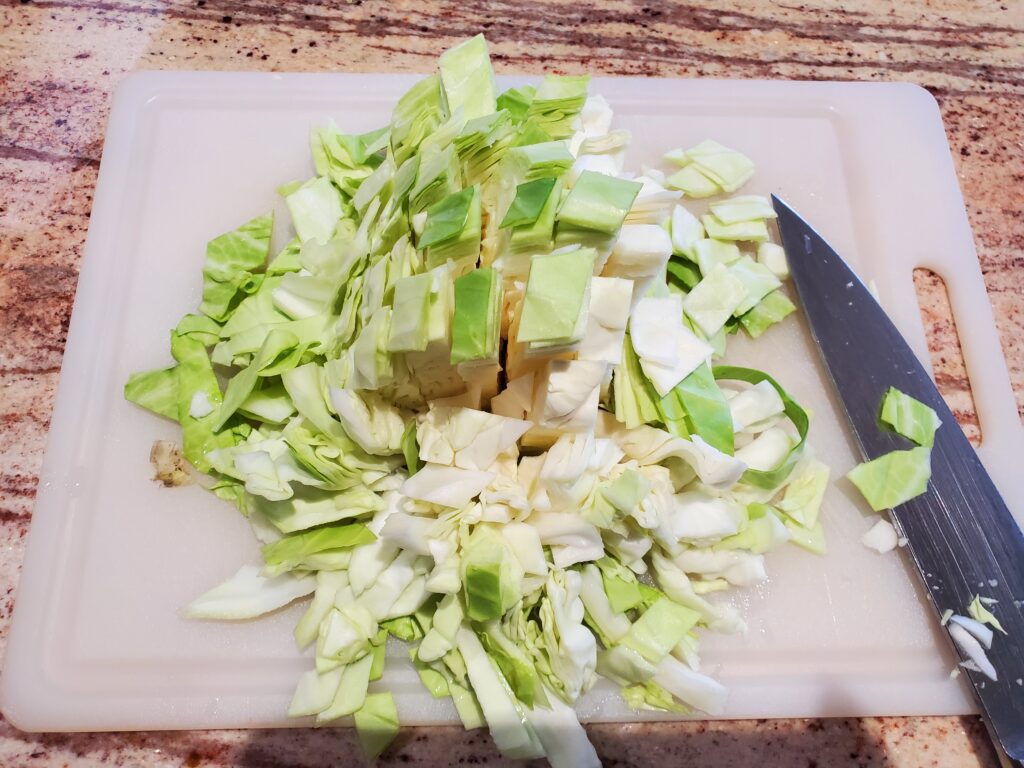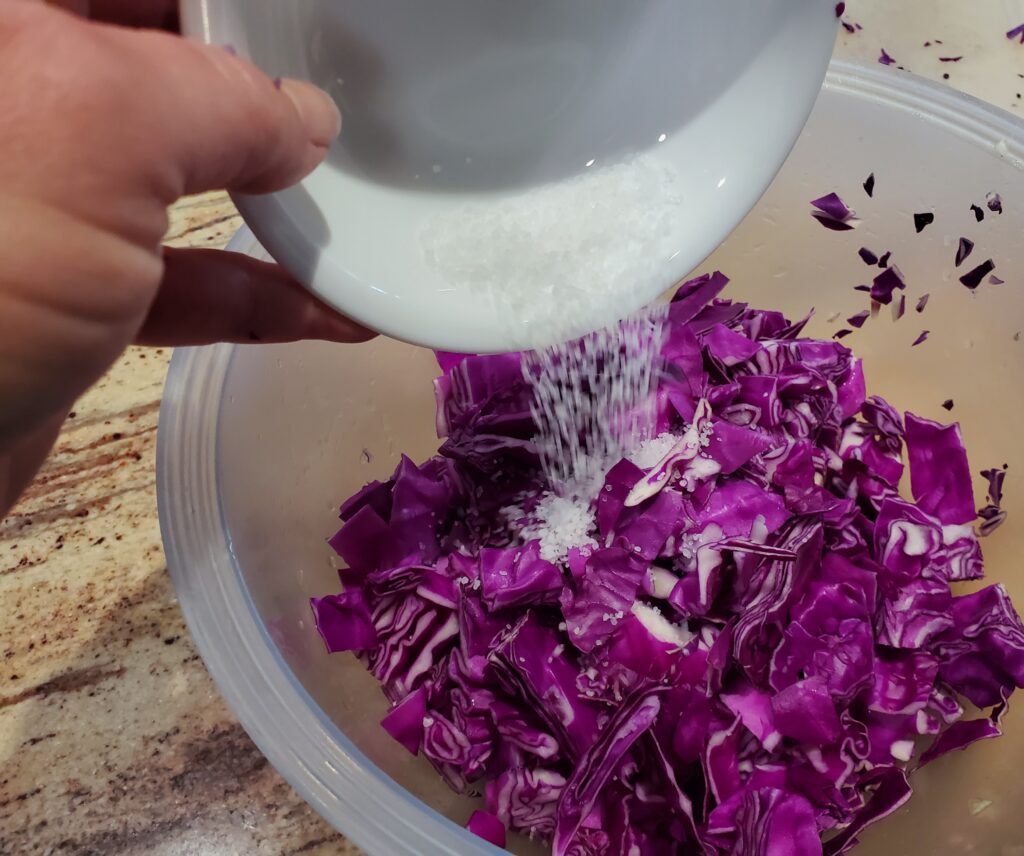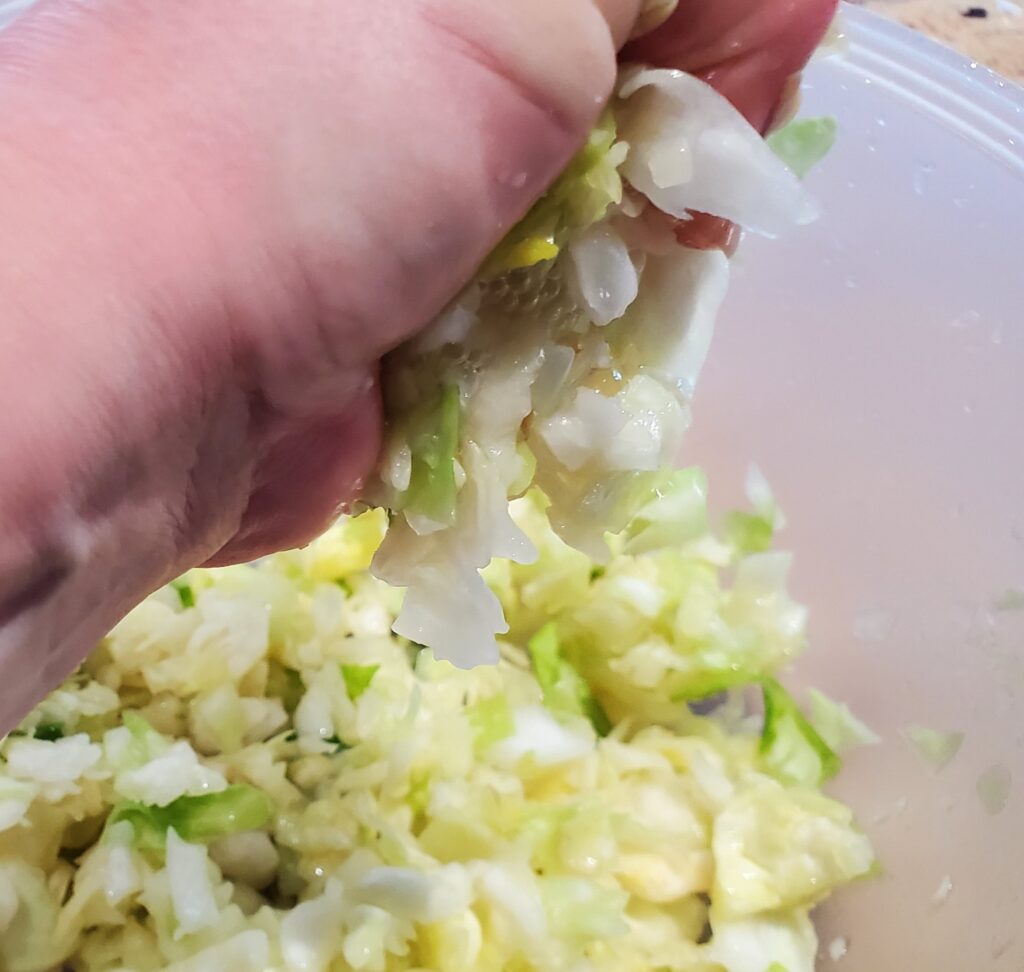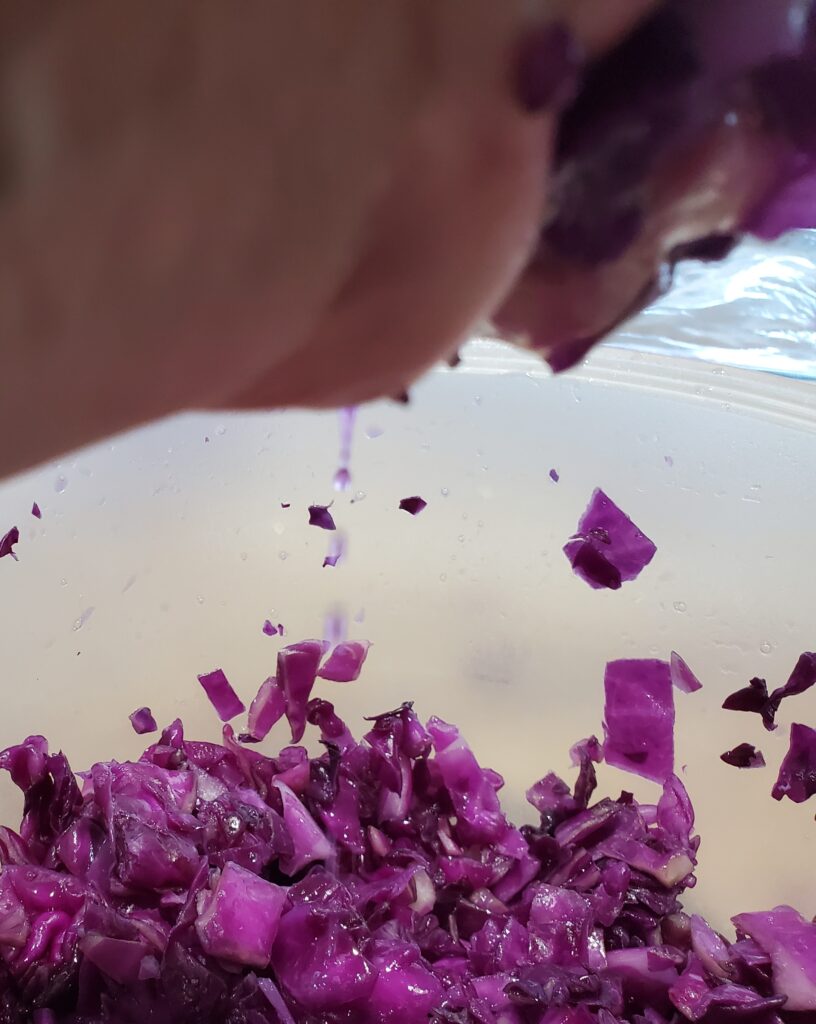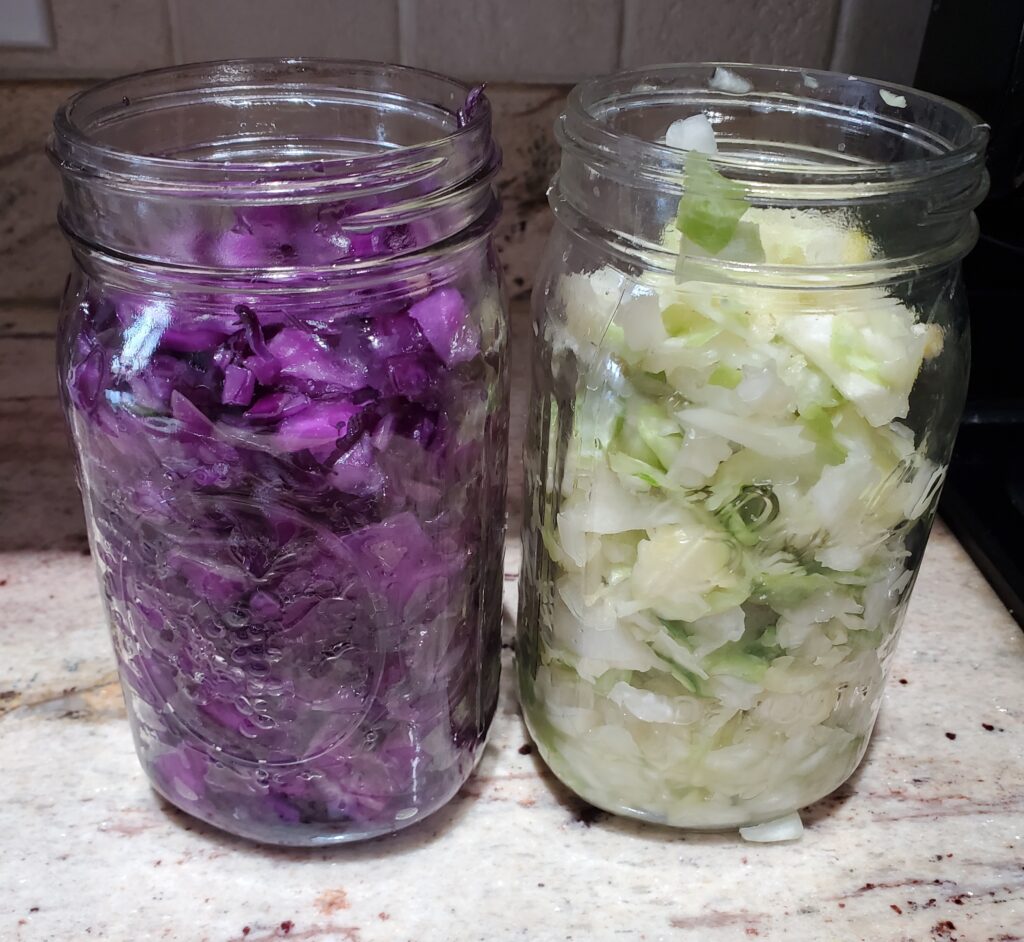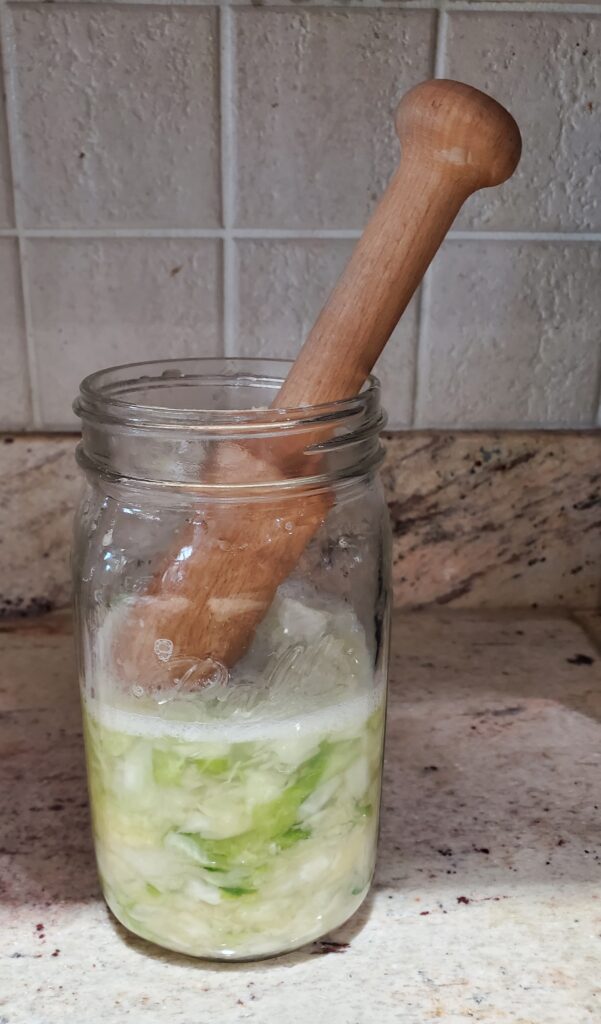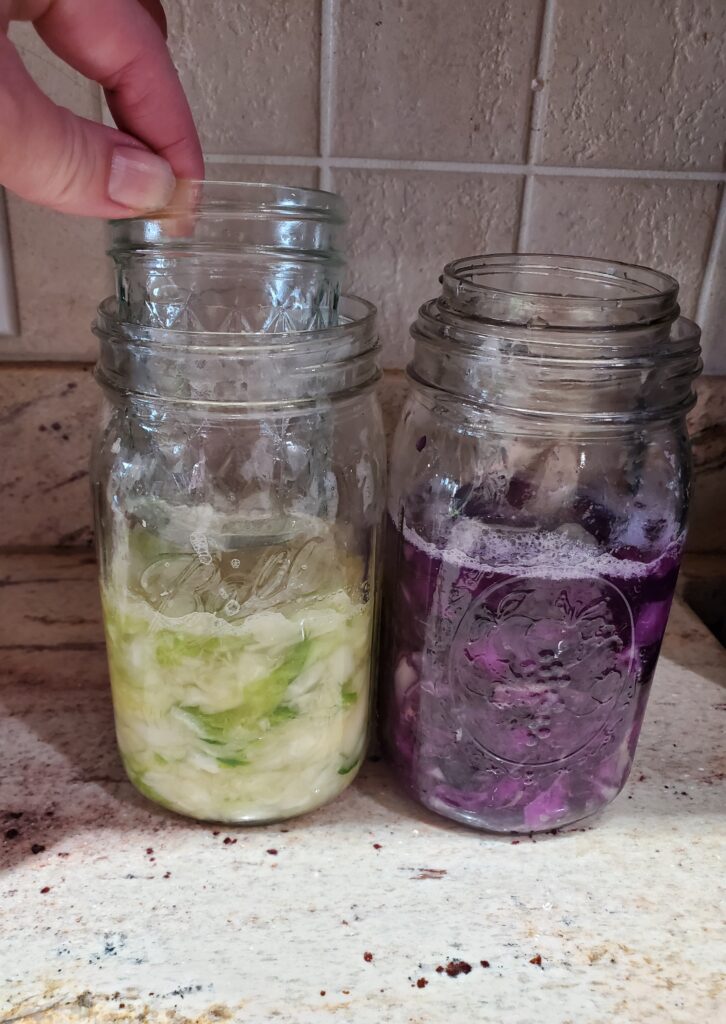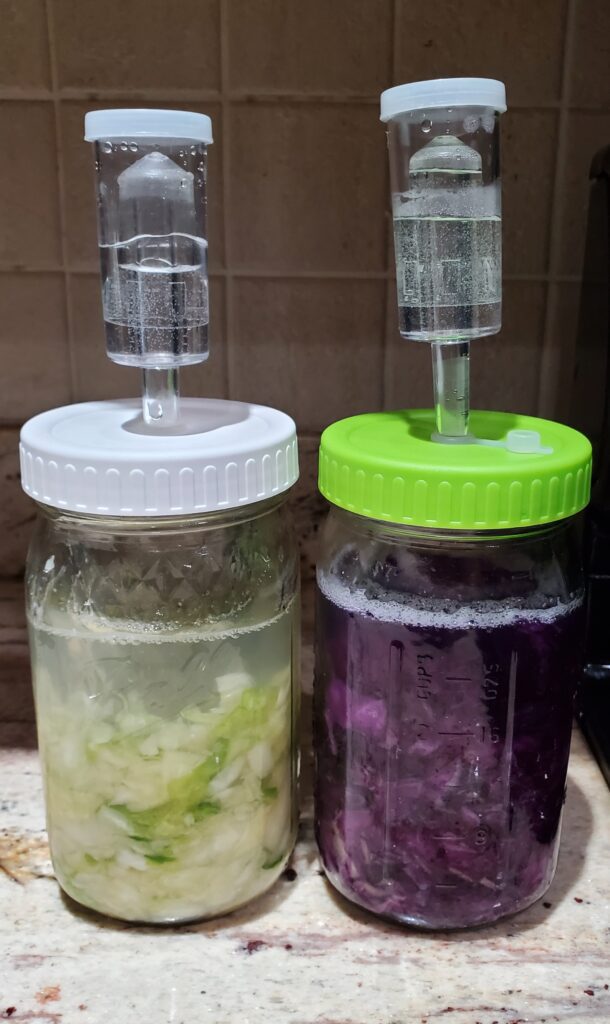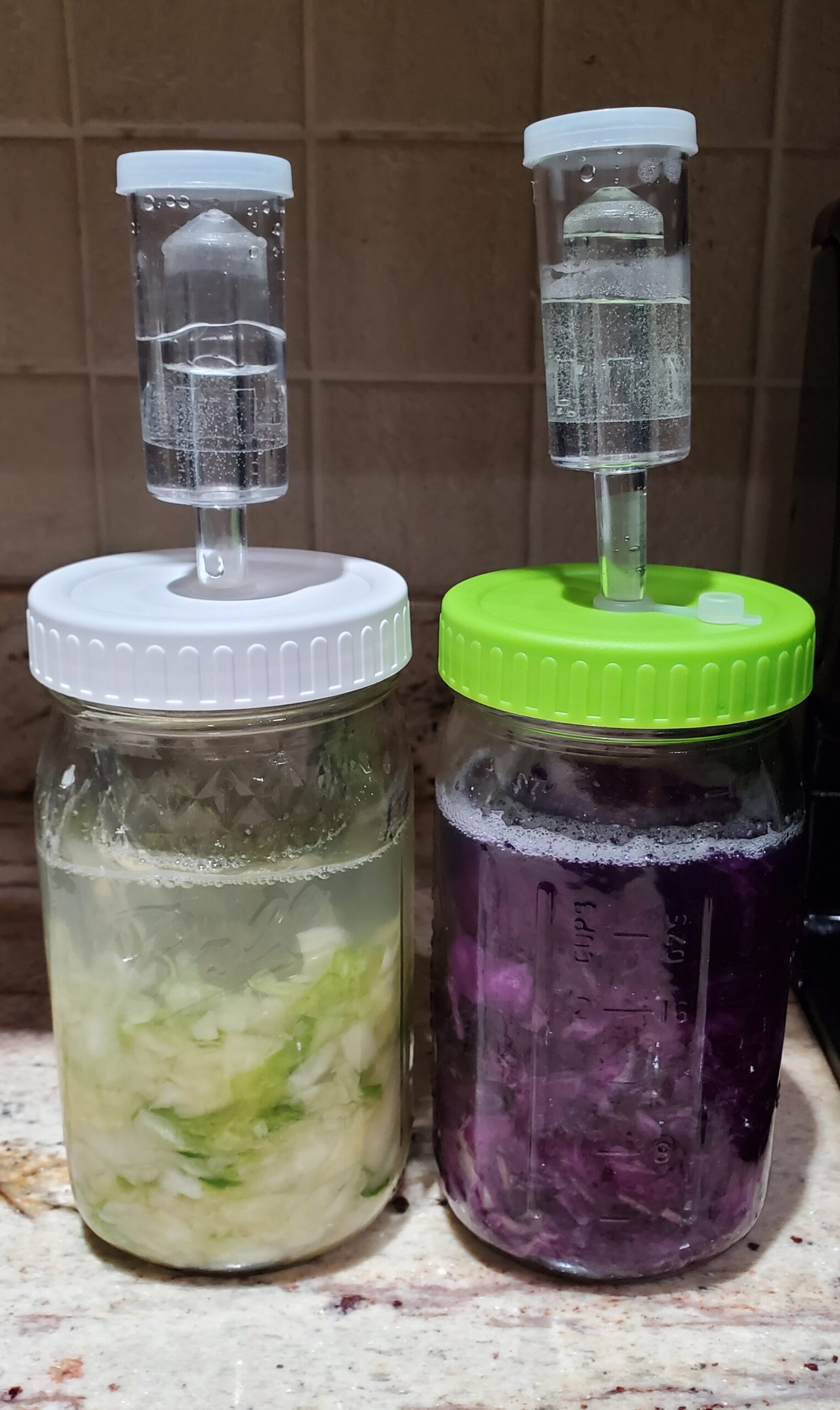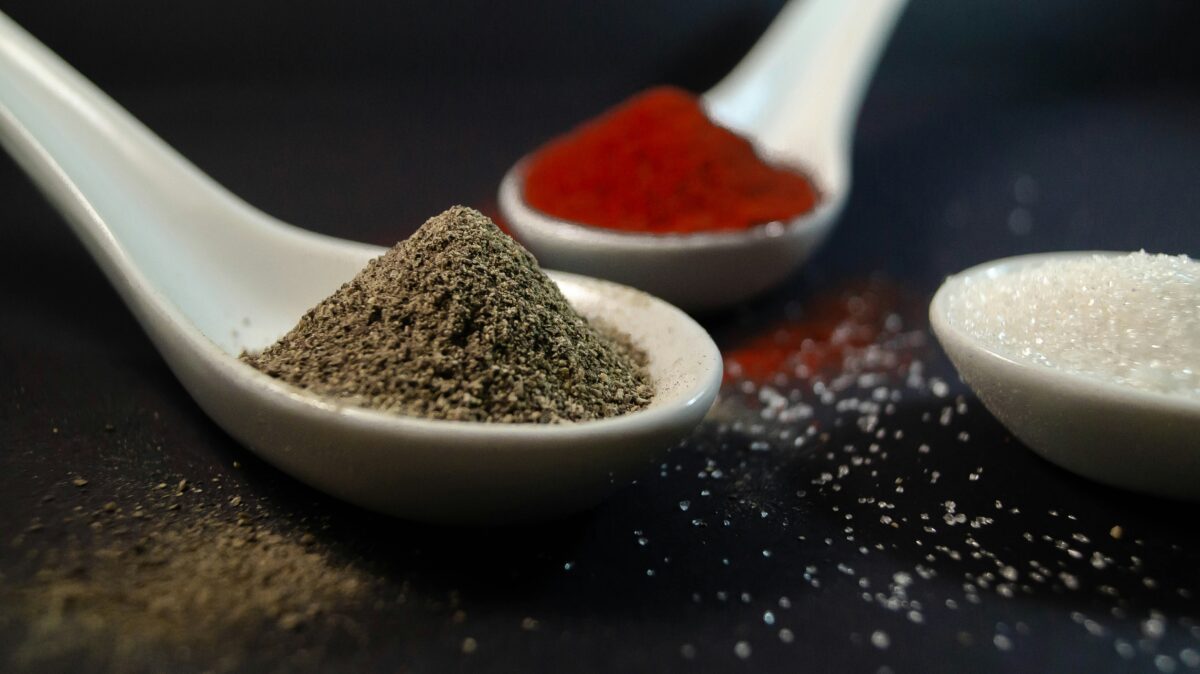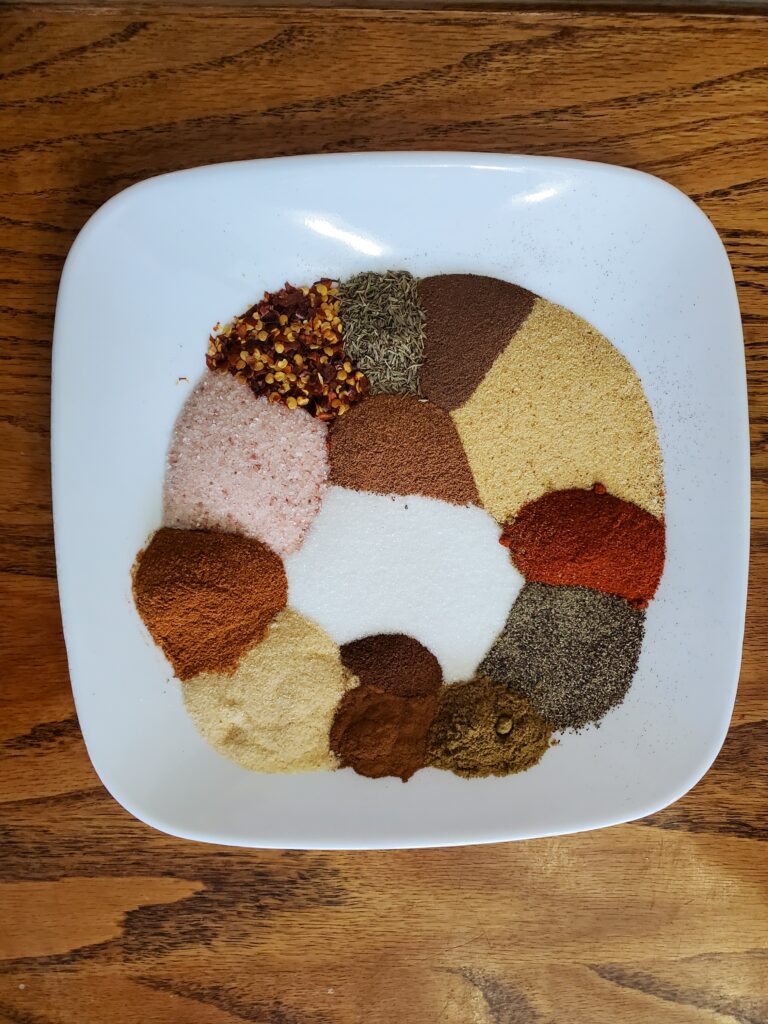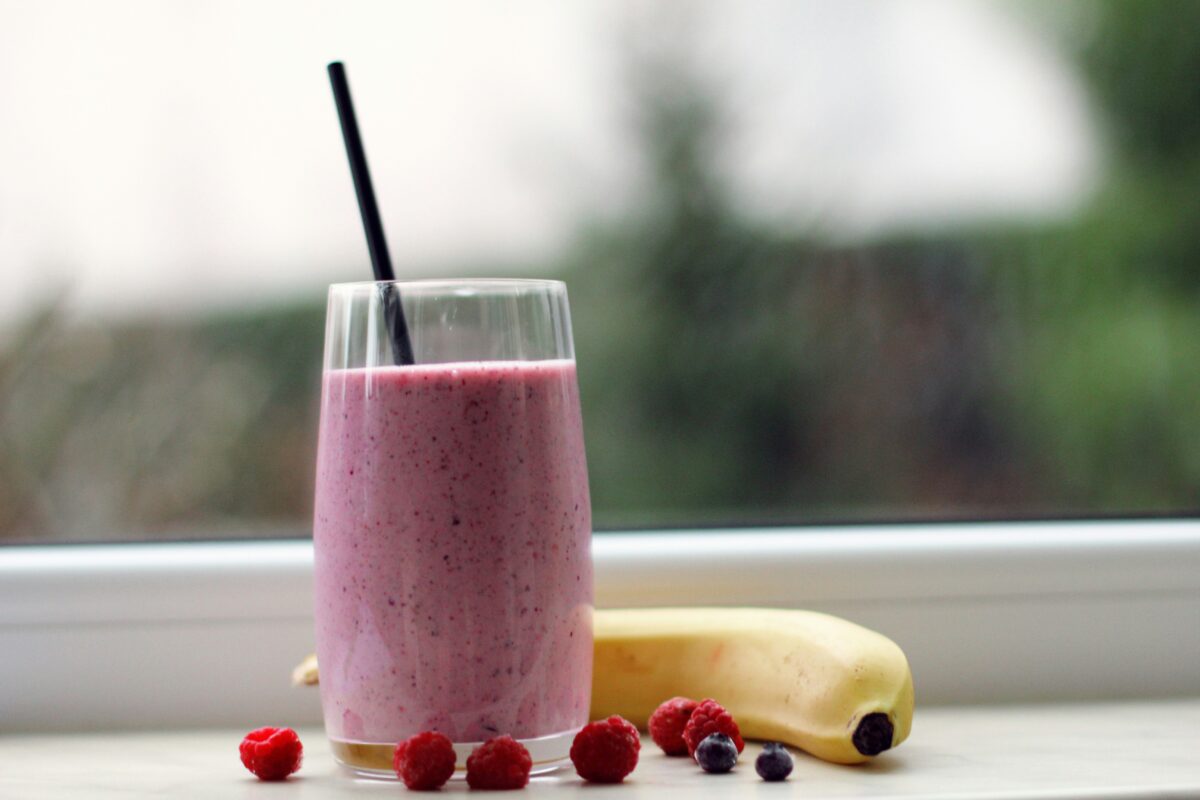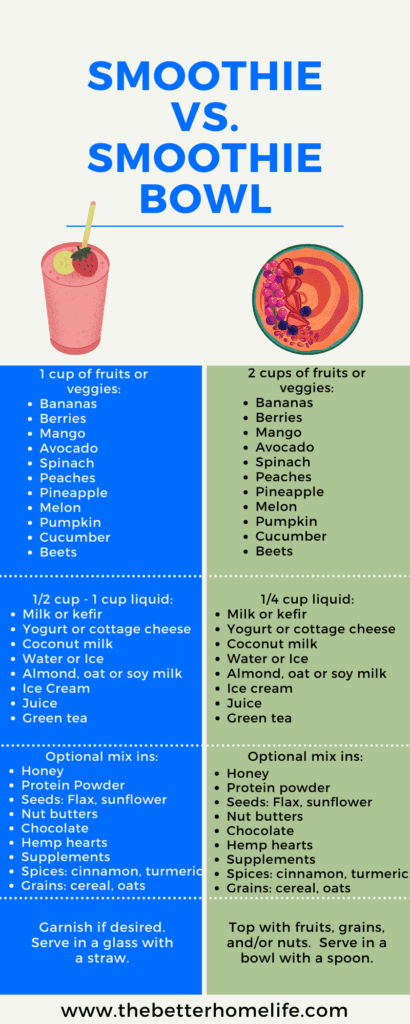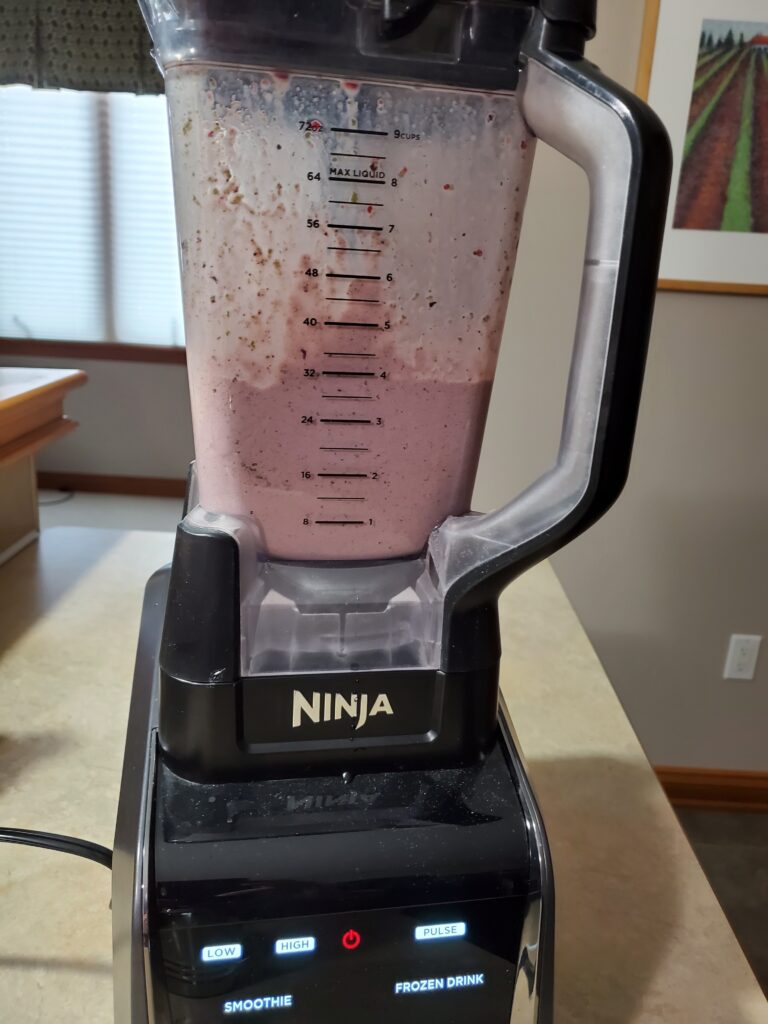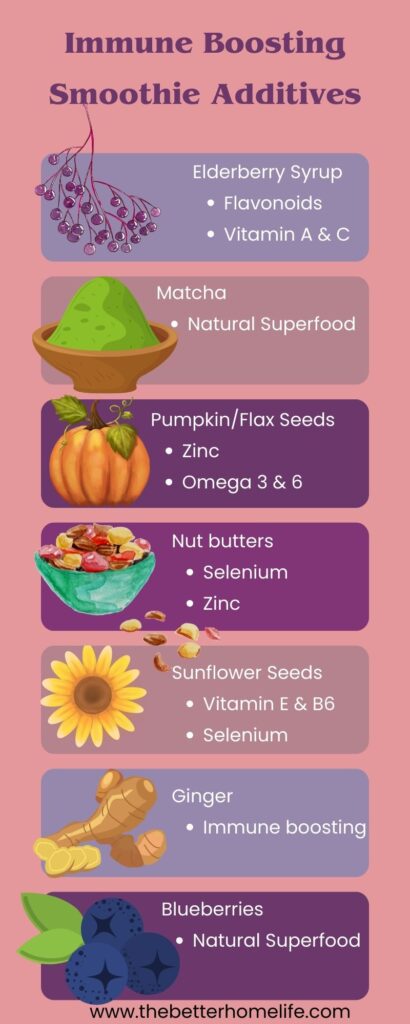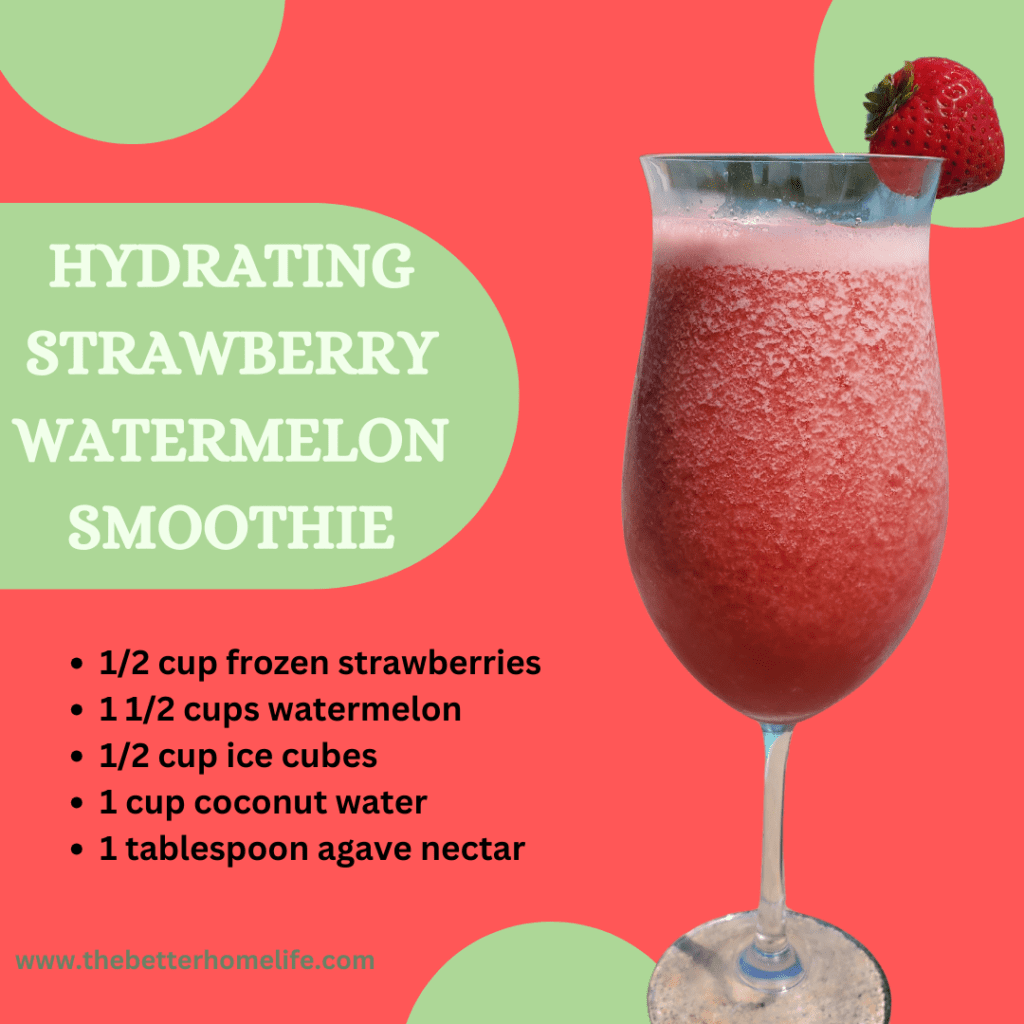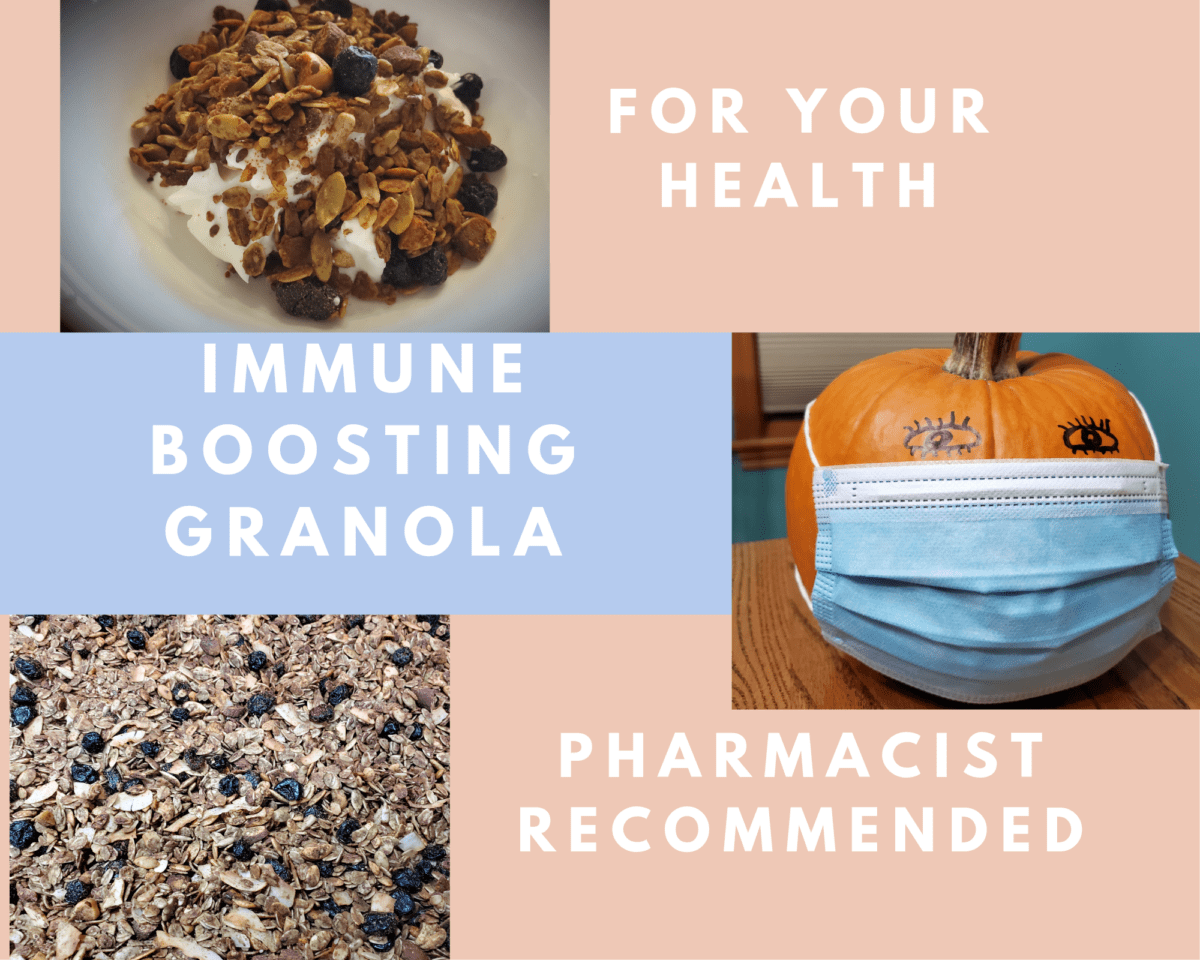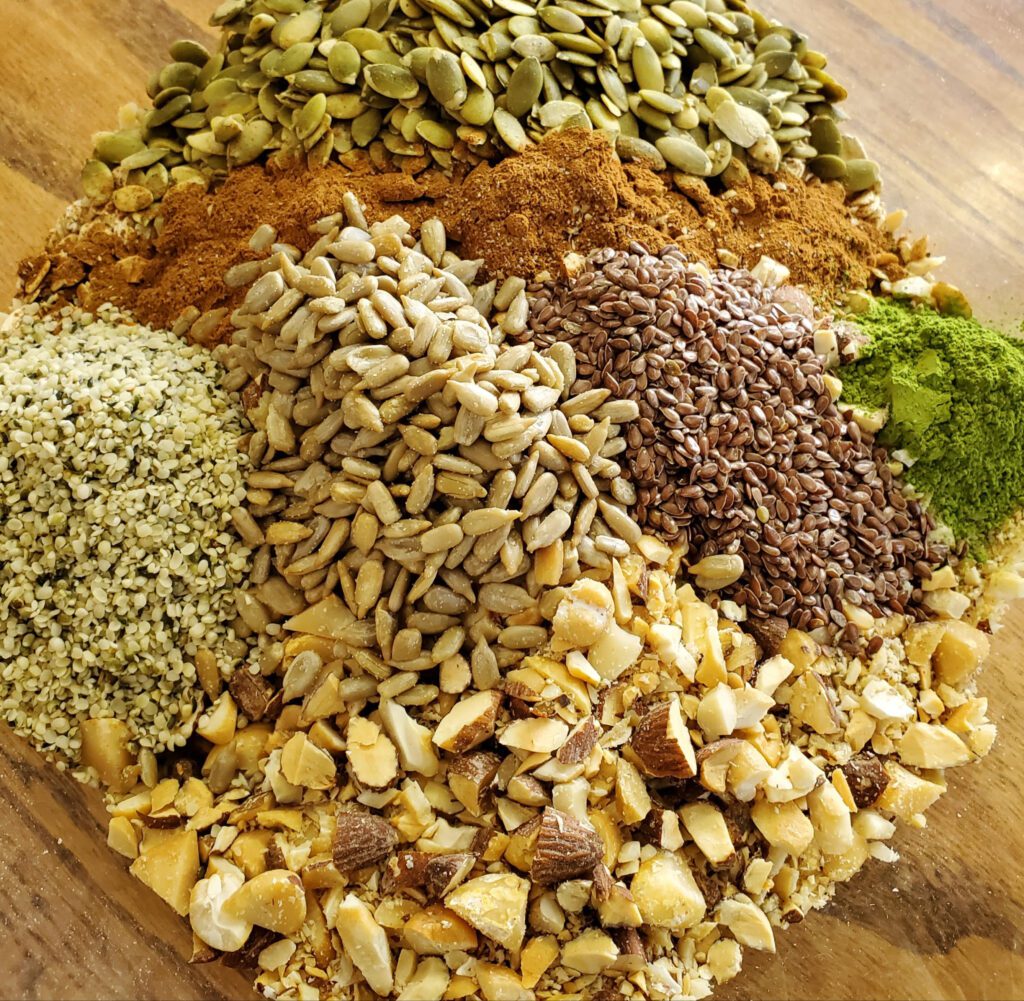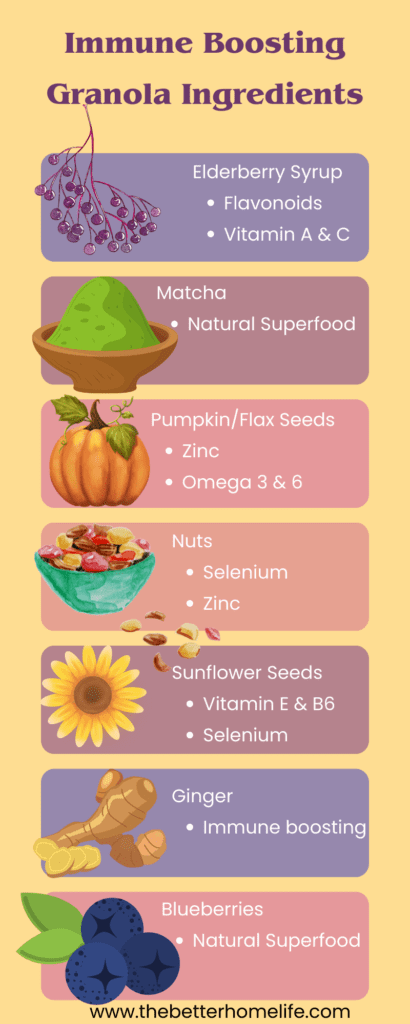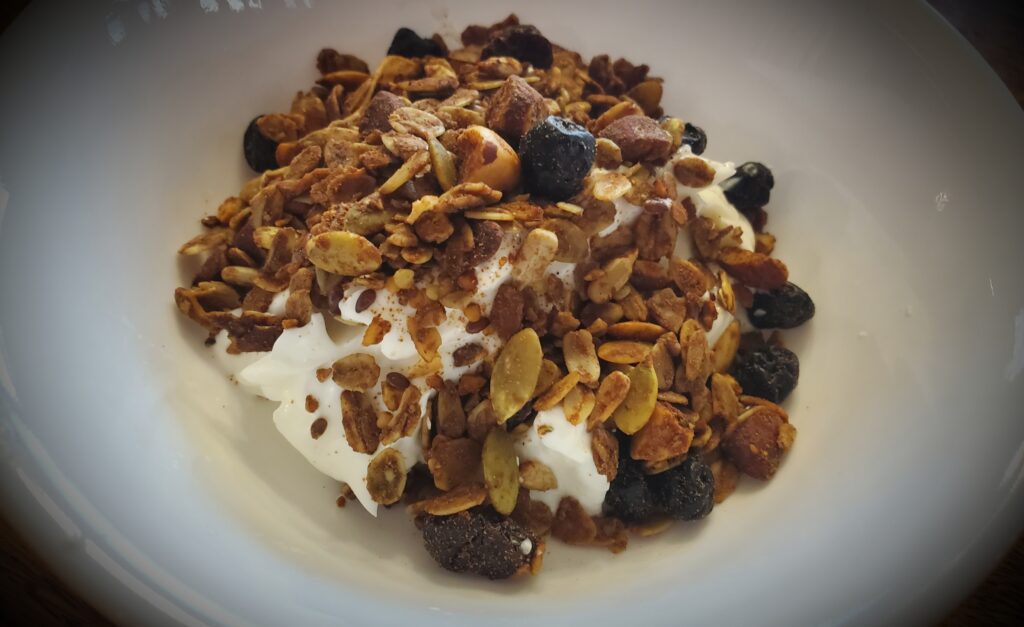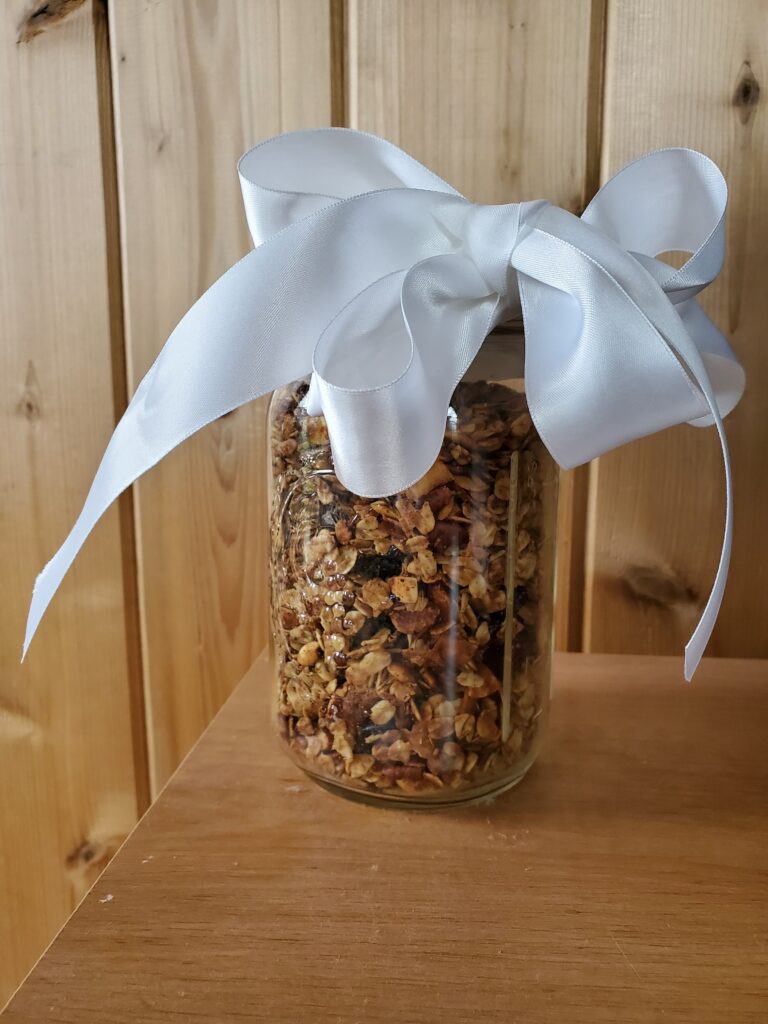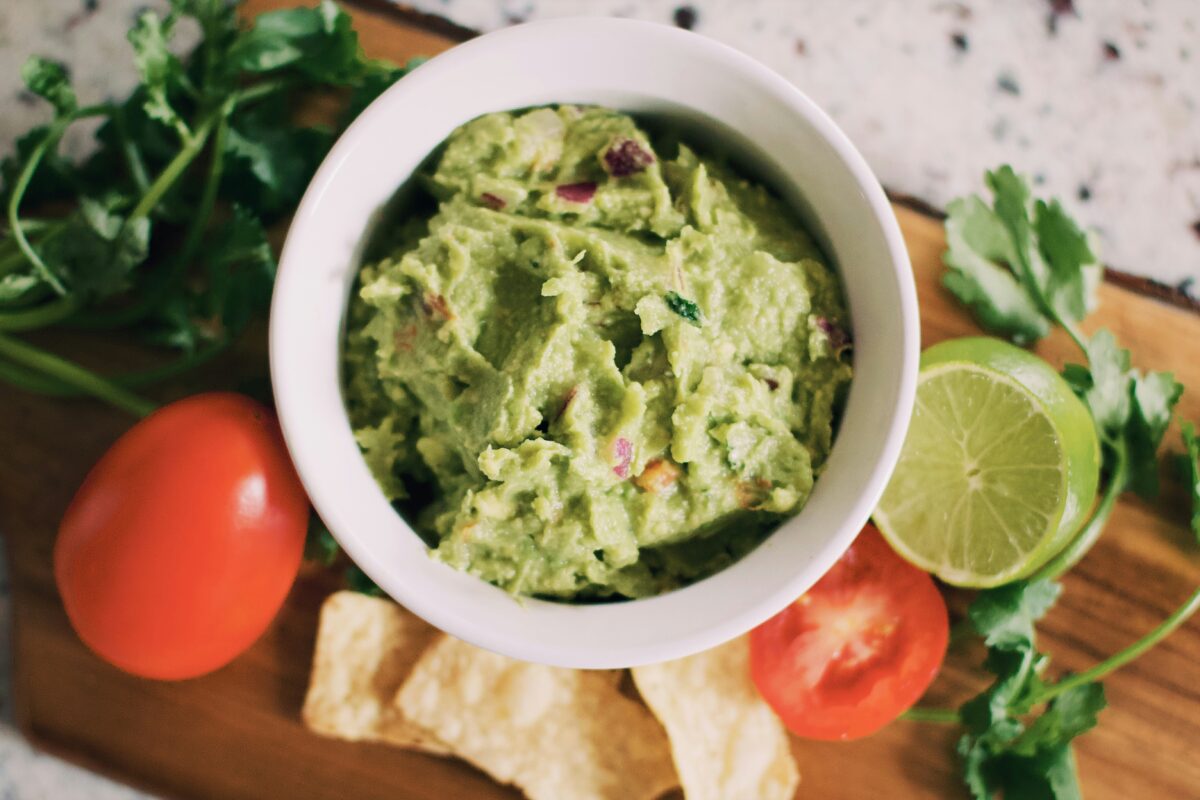This easy stuffed pepper recipe is a great meal to prepare ahead or bake right away. I usually make it when peppers are on sale, which is usually in the summer. I don’t like to heat up my house with the oven in the summer so, I’ve included directions for smoked stuffed peppers. These stuffed peppers also make great leftovers for packed lunches and this meal is freezable. Basically the prefect family meal!
Disclaimer: This post may contain affiliate links. I earn commission from qualified purchases at no additional cost to you.
Best pepper characteristics for making stuffed peppers
- similar in shape and size
- level bottom, so they stand up straight
- tall and thin vs. short and fat – to fit in the baking dish better
- 4 bumps on the bottom rather than 3, because the stand up better on their own
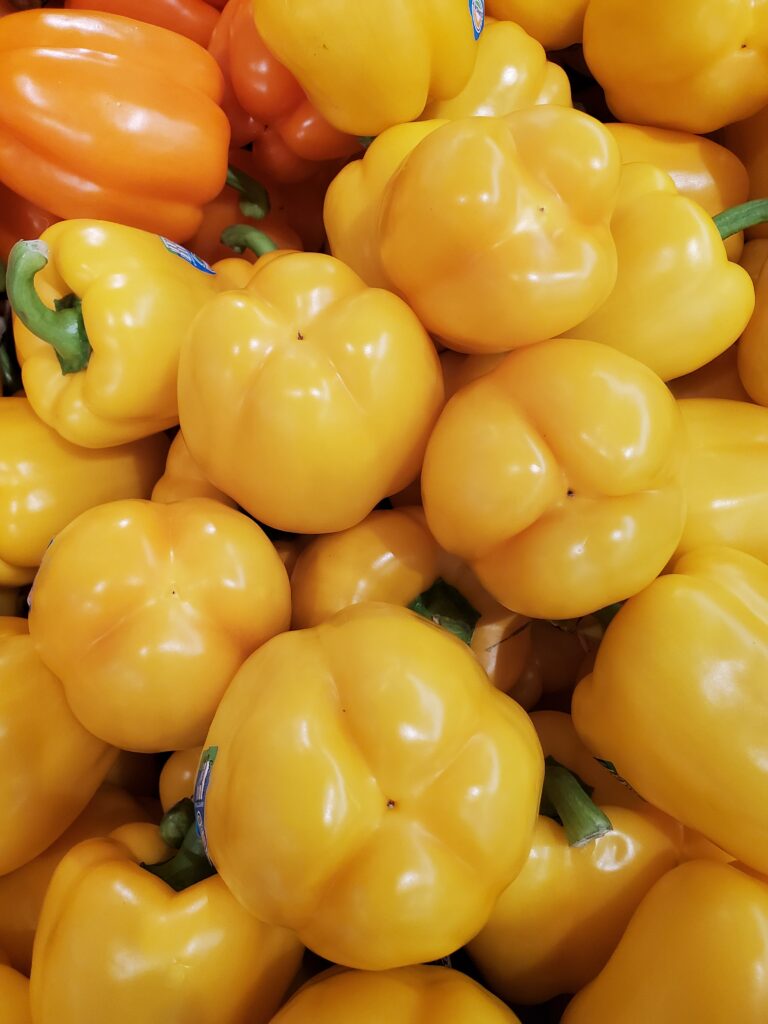
Stuffed Pepper Ingredients:
- 8 bell peppers, any color
- 1 pound ground beef
- 1 package of taco seasoning + water needed per package directions
- 1 cup rice, cooked according to package directions (~ 2 cups cooked)
- 1 medium onion, diced
- 2-3 garlic cloves, minced or grated
- 1 15.5 ounce can black beans, drained and rinsed
- 1 14.5 ounce can of fire roasted diced tomatoes
- 1 4 ounce can of diced green chilis
- 1 cup shredded cheddar cheese
- fresh cilantro for garnish
How to make stuffed peppers
Cut the tops off the peppers. Remove the stems, but keep the remaining flesh from the top. Remove any remaining seeds and as much pith as possible. Place the pepper bottoms in a Pyrex deep 9×13 inch baking dish and dice up the tops.
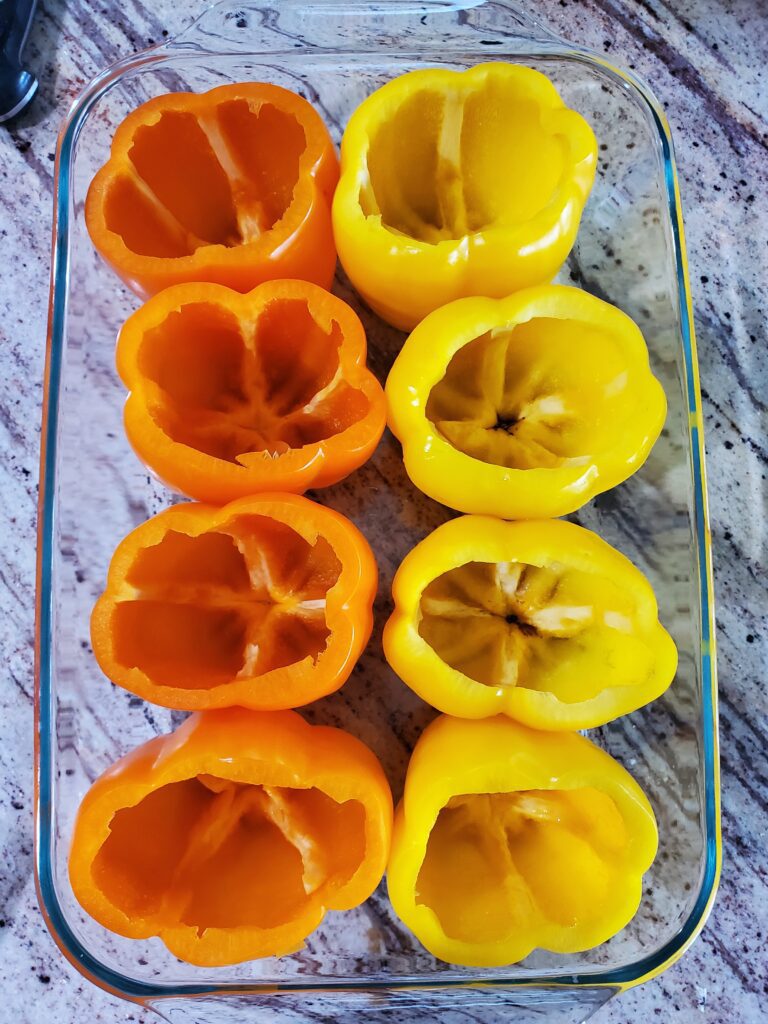
Prepare the rice according to package directions. Set aside.
Brown the ground beef, drain and add the taco seasoning according to package directions. Set aside.
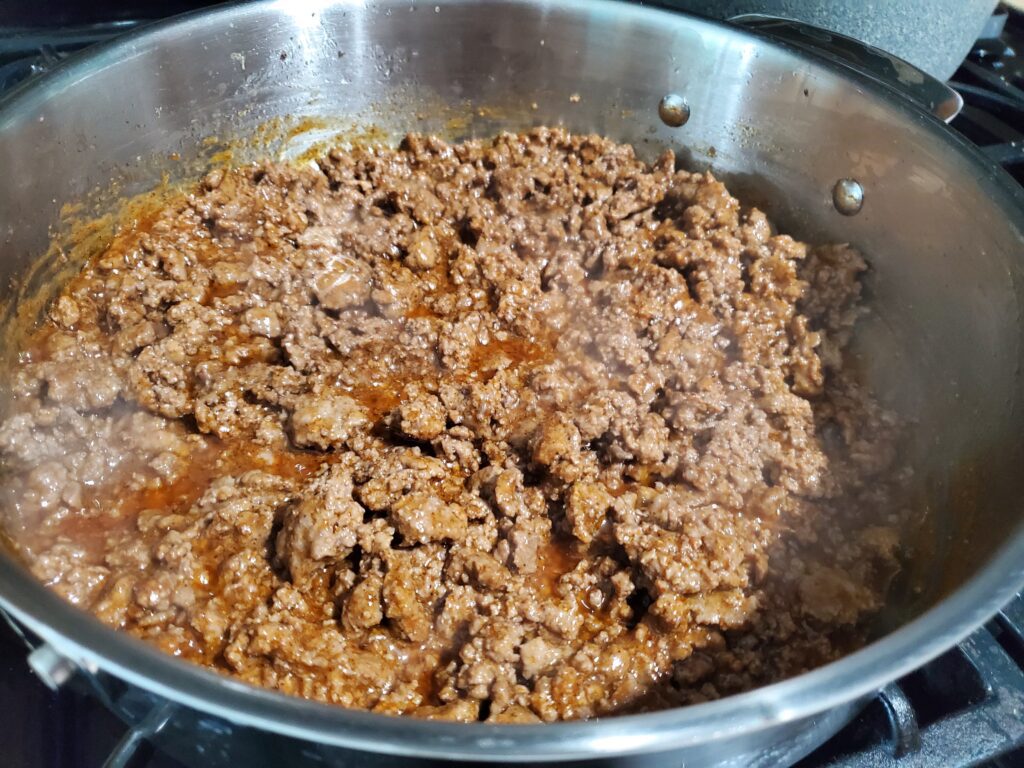
Sauté the onions and diced pepper tops until softened, add the garlic, and sauté for another minute.
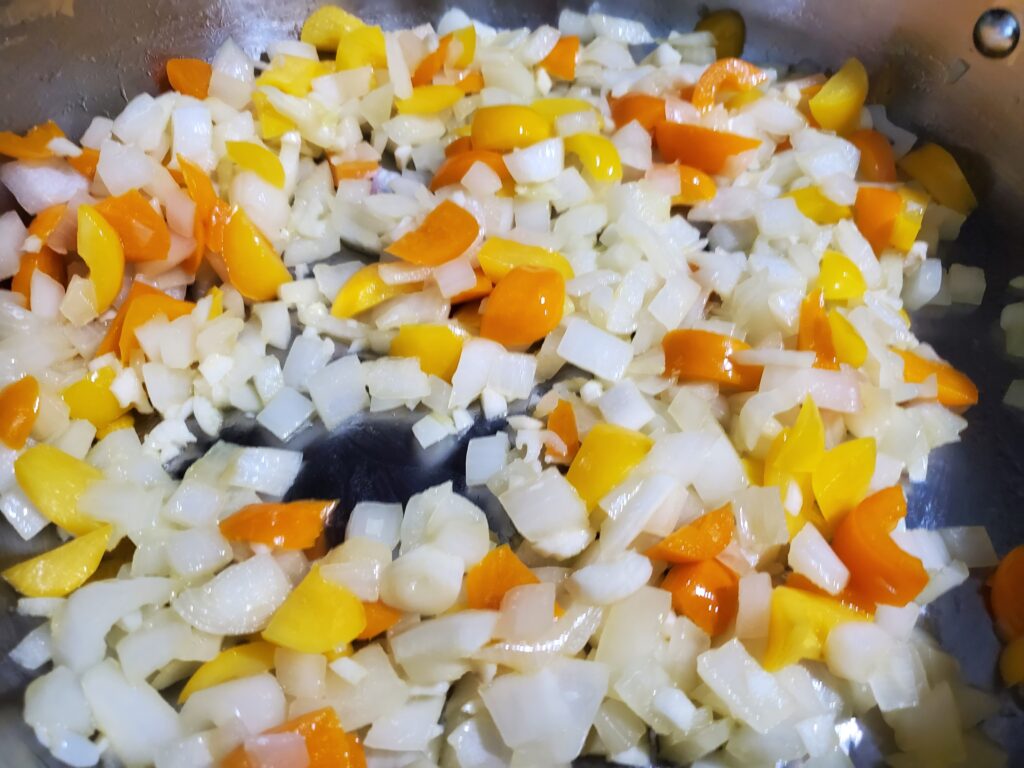
Add the tomatoes and green chilis, mix until well combined.
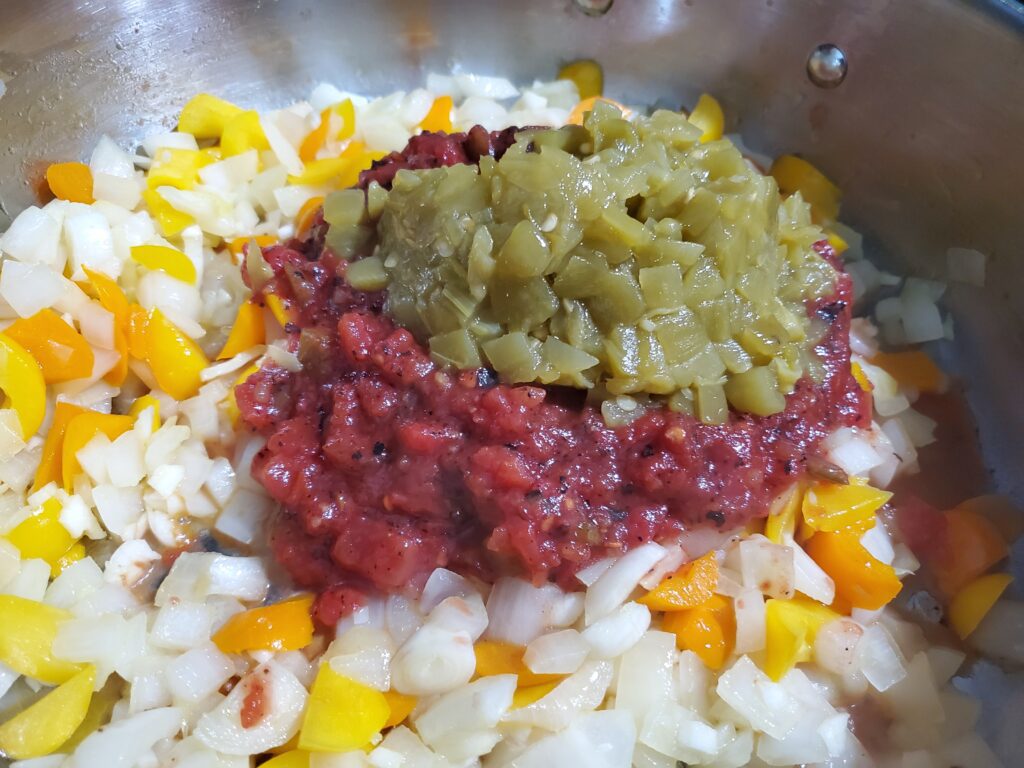
Add the black beans and mix.
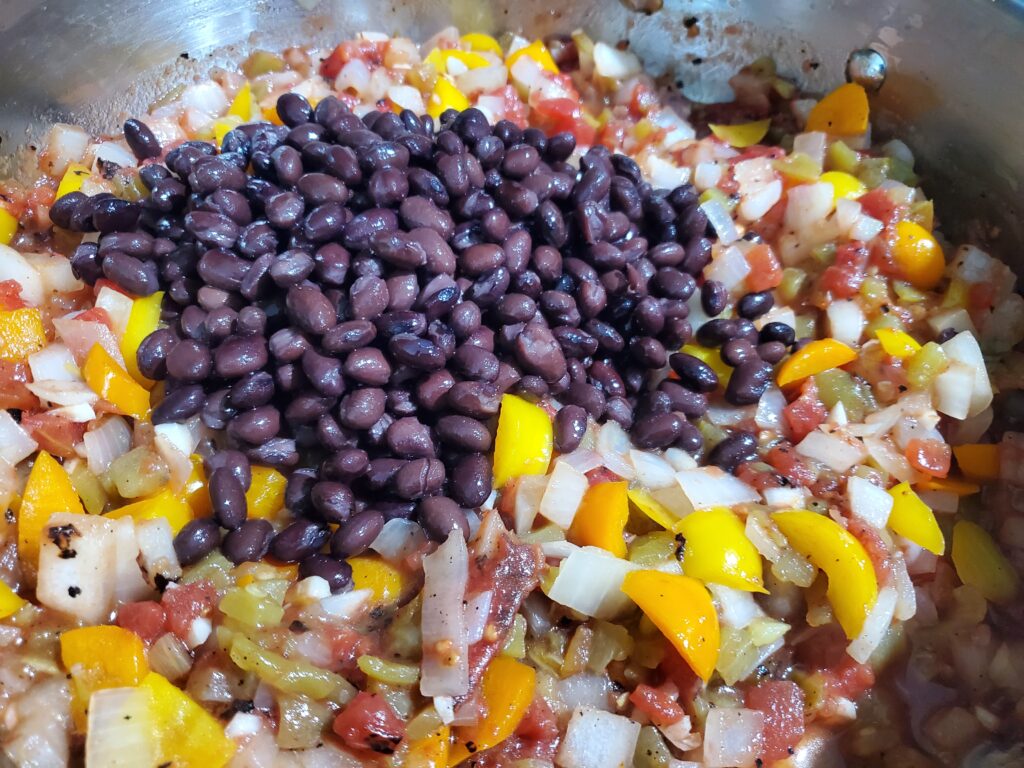
Finally add the cooked rice and mix until well combined.
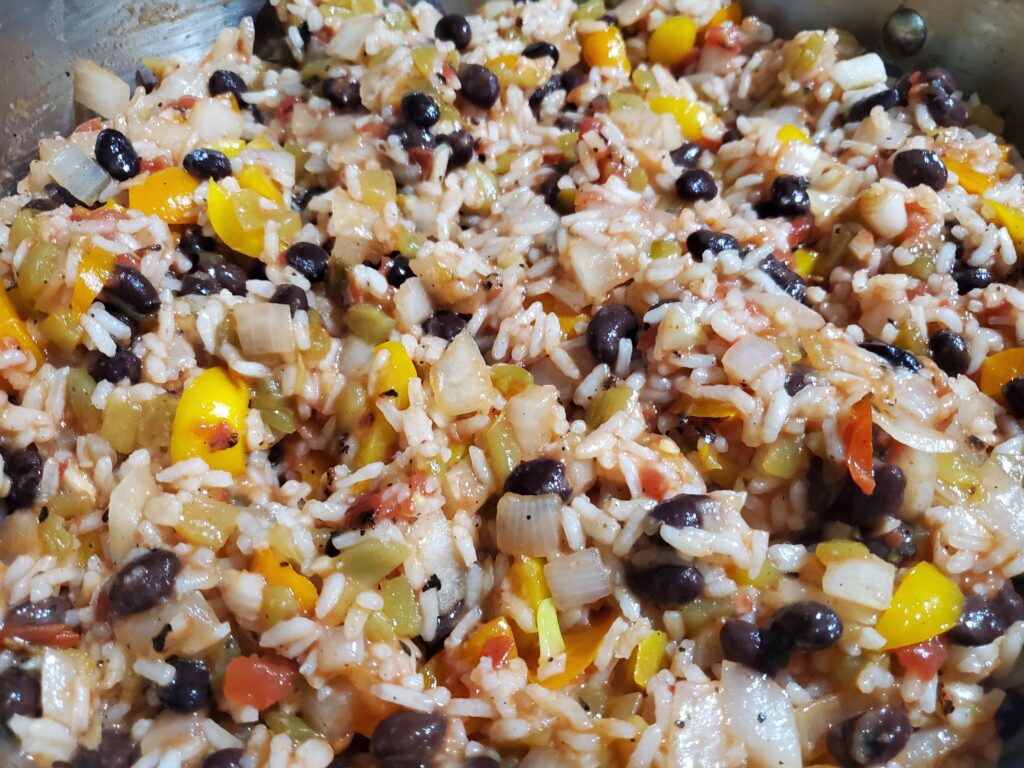
Remove from heat and mix in the taco meat.
Stuff this mixture into the pepper bottoms.
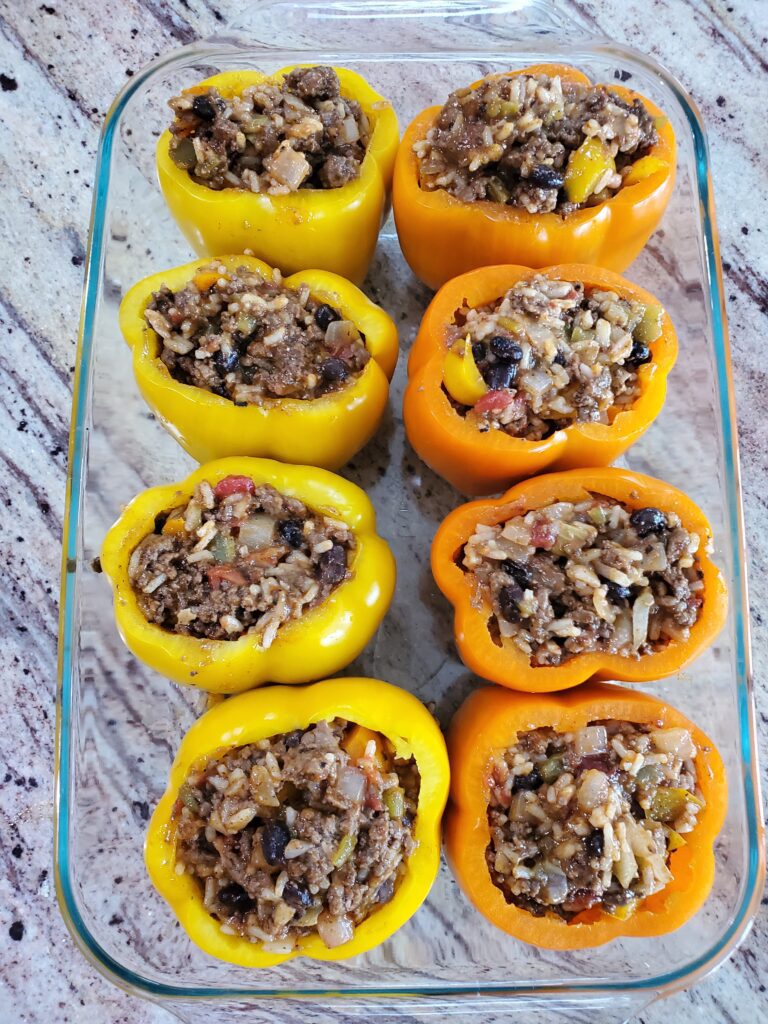
Top with shredded cheese. Pour about 3/4 cup of water into the bottom of the baking dish. Just enough to cover the bottom of the dish.
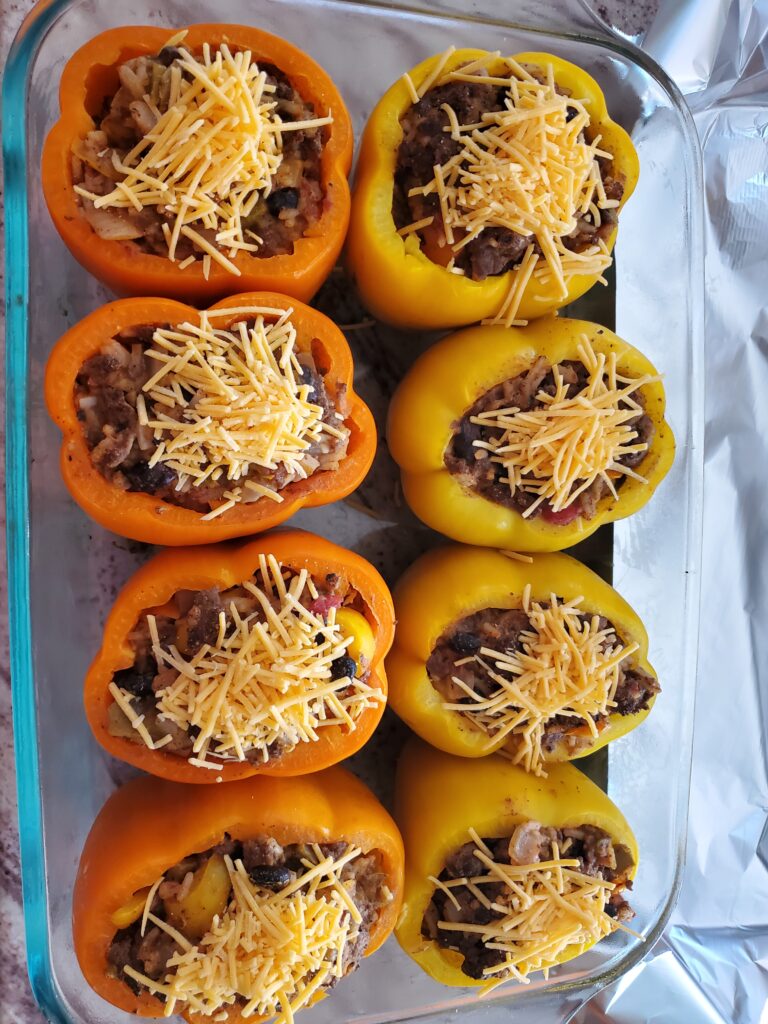
Cover with aluminum foil.
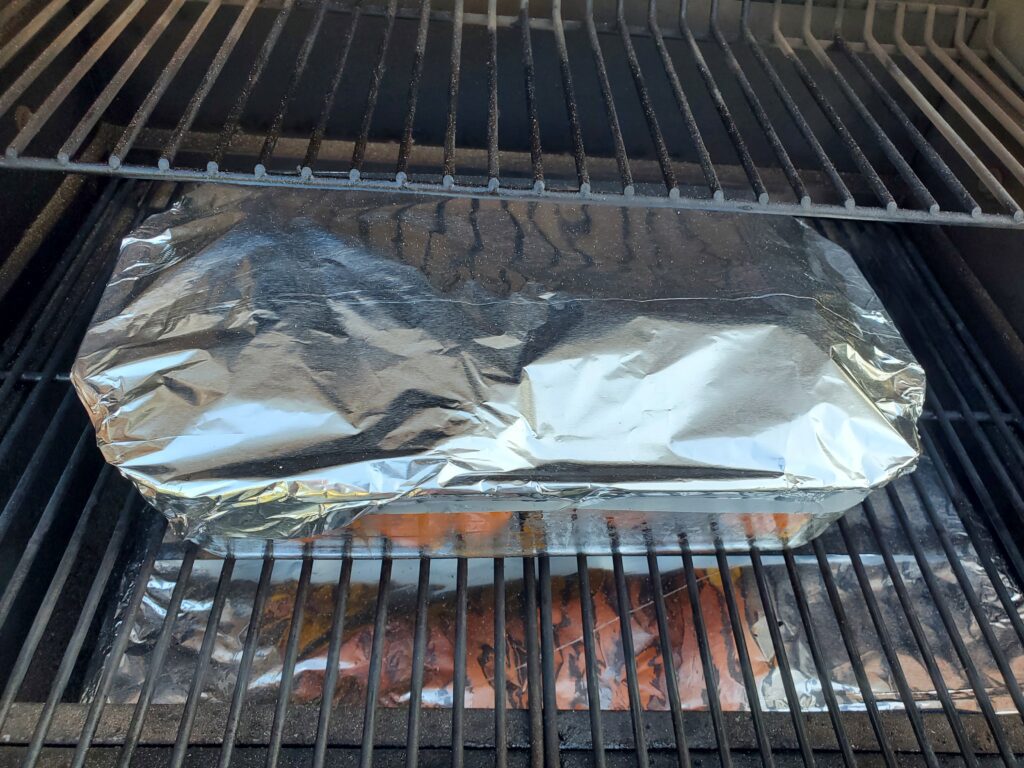
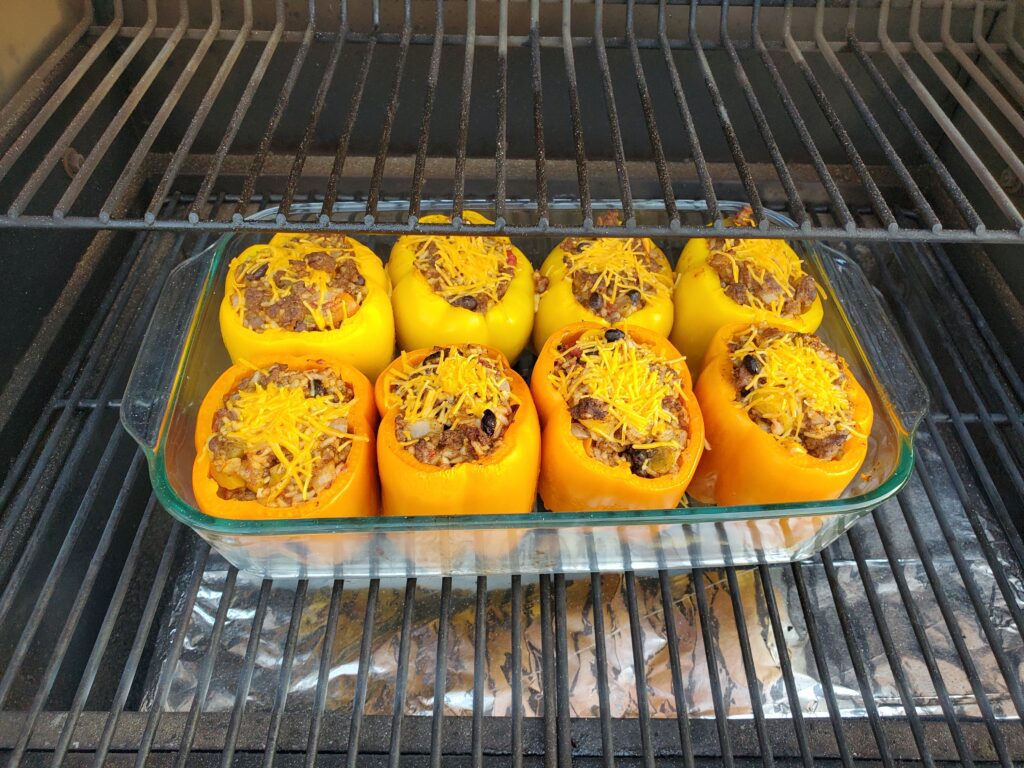
Preheat the Traeger or Oven to 400 degrees F. Bake/smoke covered for 30 min. Remove the foil and continue to bake/smoke for another 10 minutes or until the cheese is melted.
Garnish with fresh cilantro.

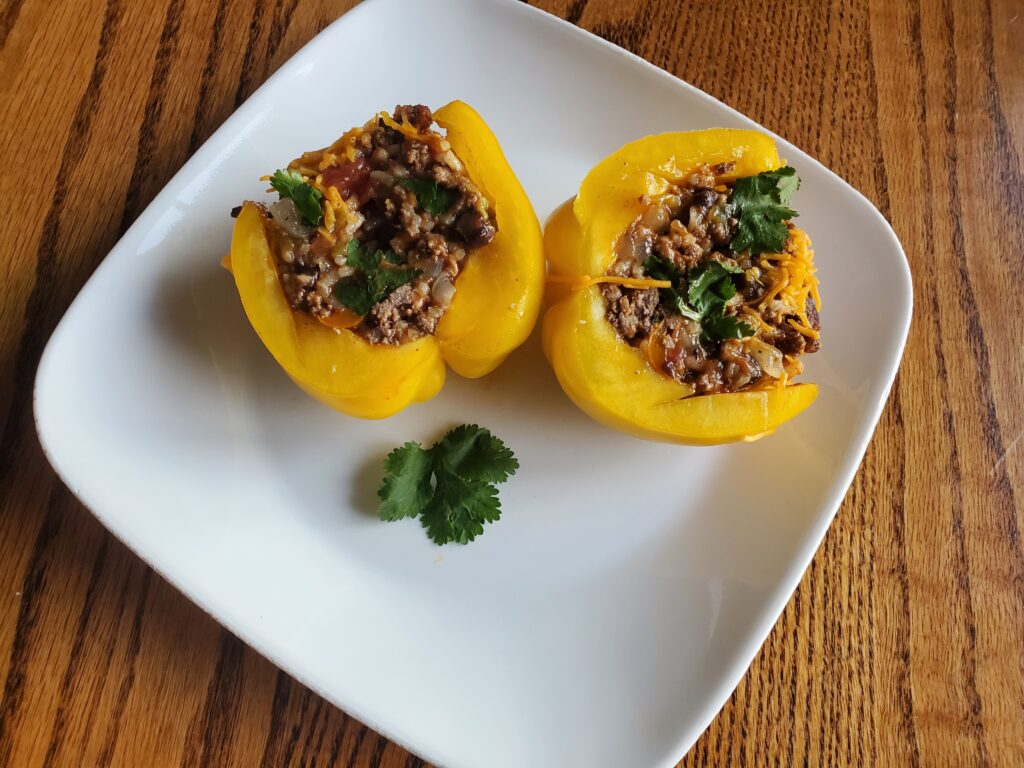
Are smoked stuffed peppers good re-heated?
Yes, stuffed peppers make a great leftover meal. They are perfect for packed lunches too. They fit perfectly into a mug Pop-in for easy reheating!
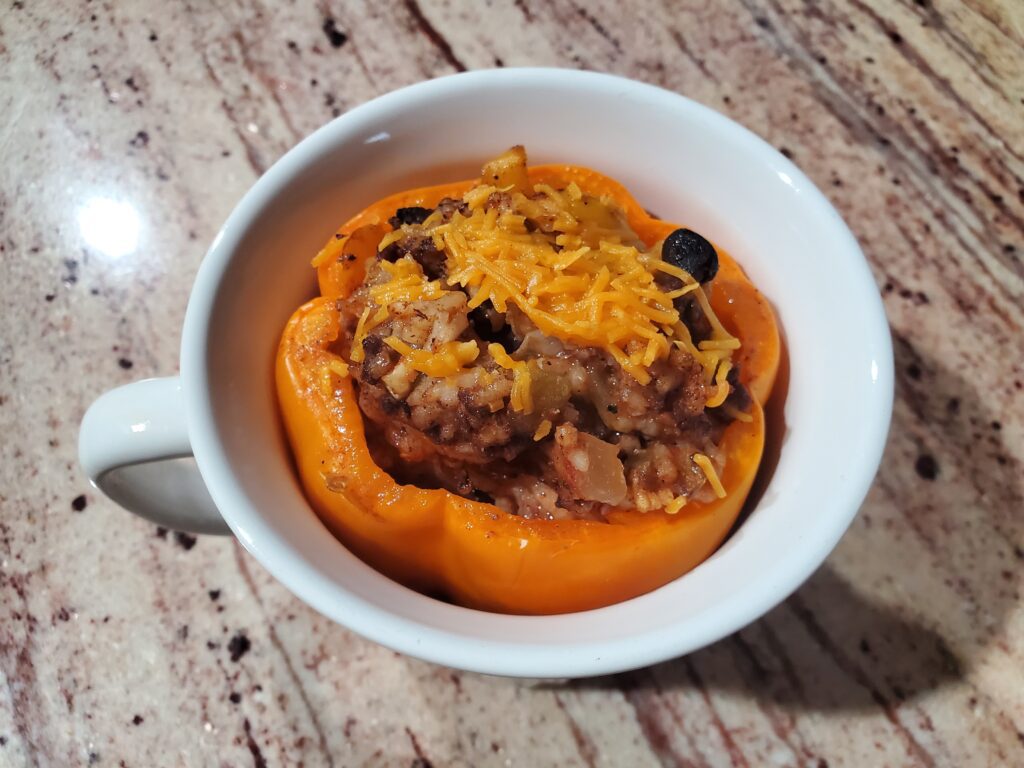
As ama Amazon Associate, I earn on qualified purchases.
More Great smoked meals:
Try this amazing smoked Shepherd’s Pie. This recipe includes both directions for baking and smoking the pie.
Try this amazing breakfast casserole on the Traeger. This recipe can also be baked in an oven.
Printable smoked stuffed peppers recipe:
Servings
8 minutes
Preparing Time
30 minutes
Cooking Time
40 minutes
Calories
kcal
INGREDIENTS
8 bell peppers, any color
1 pound ground beef
1 package of taco seasoning + water needed per package directions
1 cup rice, cooked according to package directions (~ 2 cups cooked)
1 medium onion, diced
2-3 garlic cloves, minced or grated
1 15.5 ounce can black beans, drained and rinsed
1 14.5 ounce can of fire roasted diced tomatoes
1 4 ounce can of diced green chilis
1 cup shredded cheddar cheese
fresh cilantro for garnish
DIRECTION
- Cut the tops off the peppers. Remove the stems, but keep the remaining flesh from the top. Remove any remaining seeds and as much pith as possible. Place the pepper bottoms in a baking dish and dice up the tops.
- Prepare the rice according to package directions. Set aside.
- Brown the ground beef, drain and add the taco seasoning according to package directions. Set aside.
- Sauté the onions and diced pepper tops until softened, add the garlic, and sauté for another minute.<br>
- Add the tomatoes and green chilis, mix until well combined. Add the black beans and mix. Finally add the cooked rice and mix until well combined.
- Remove from heat and mix in the taco meat.<br>Stuff this mixture into the pepper bottoms. Top with shredded cheese.
- Pour about 3/4 cup of water into the bottom of the baking dish. Just enough to cover the bottom of the dish.
- Cover with foil.
- Preheat the Traeger or Oven to 400 degrees F. Bake/smoke covered for 30 min. Remove the foil and continue to bake/smoke for another 10 minutes or until the cheese is melted.


